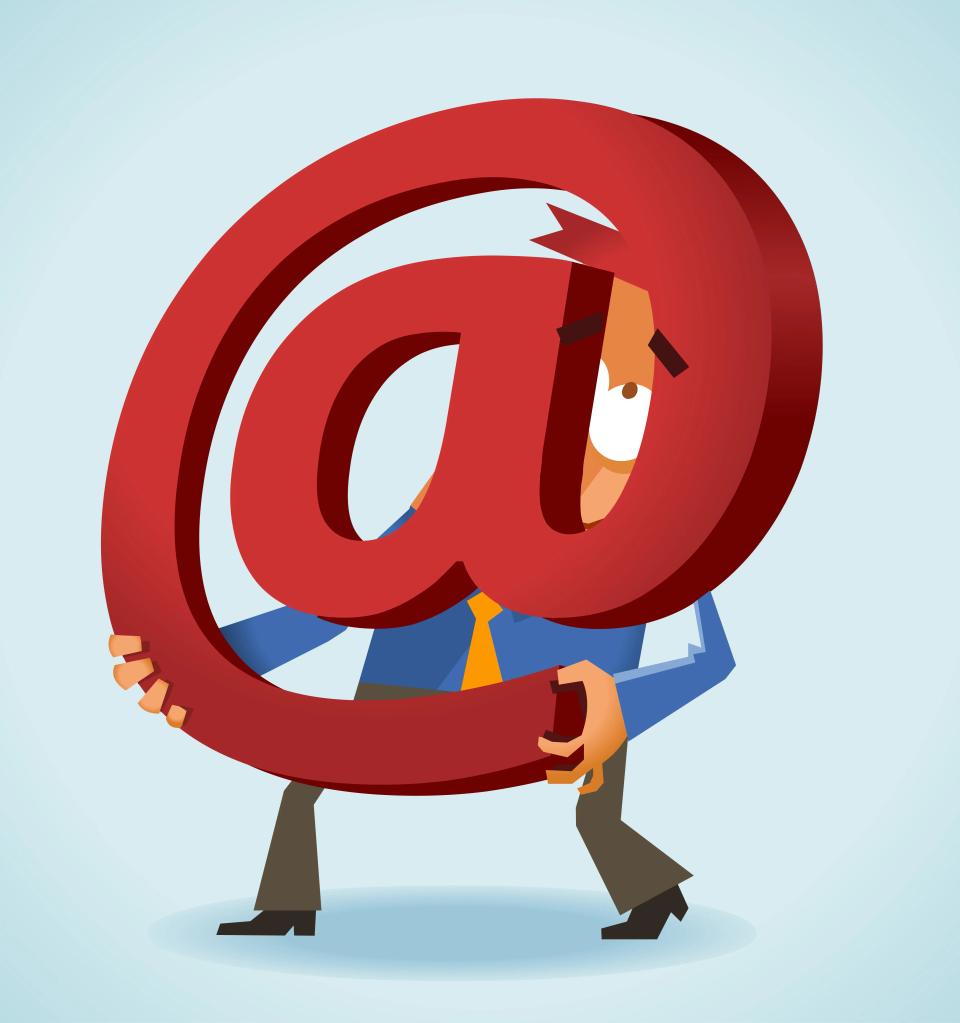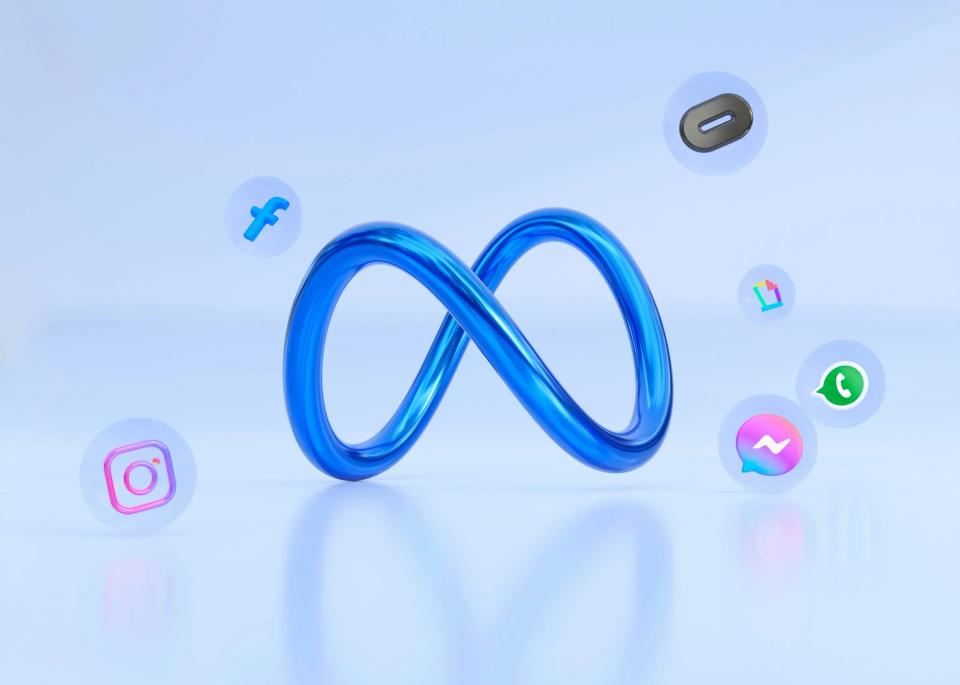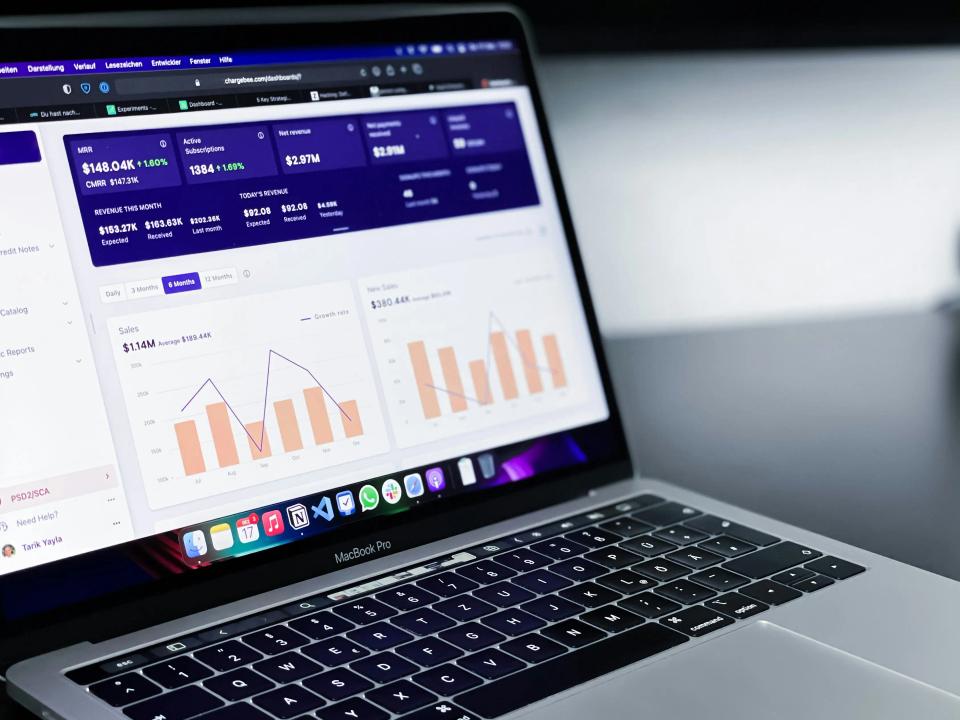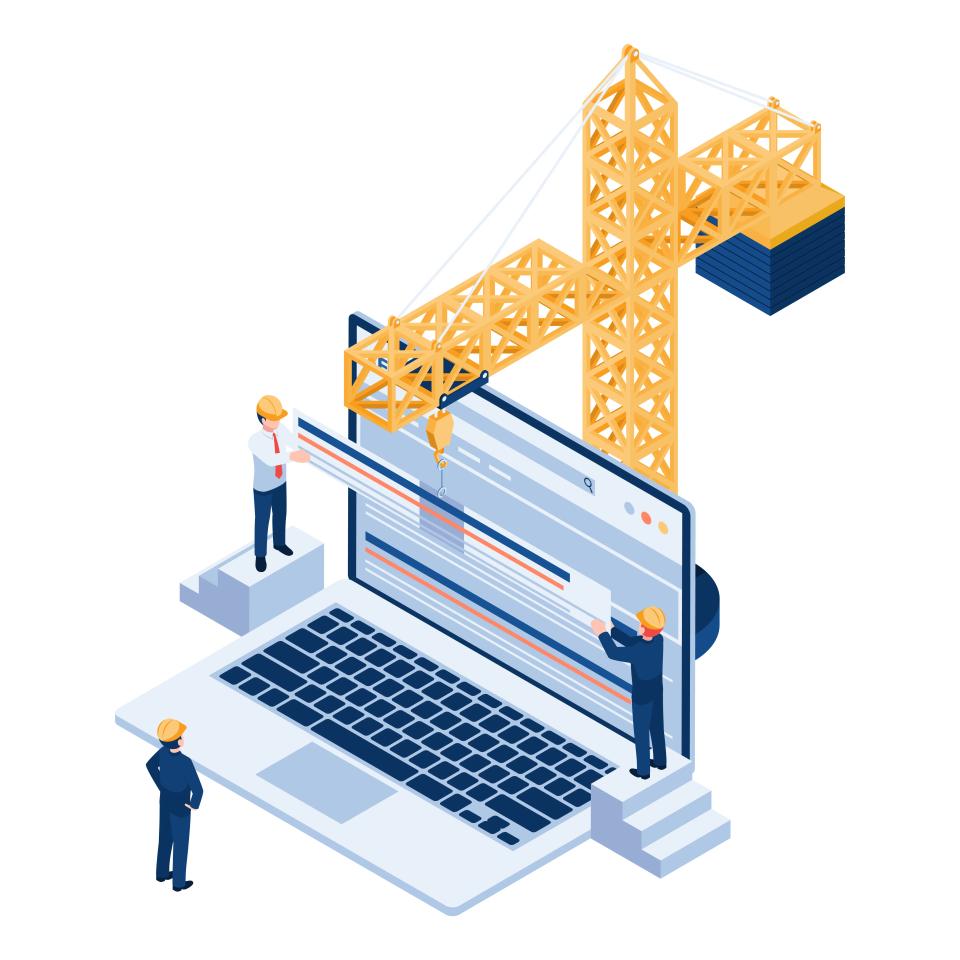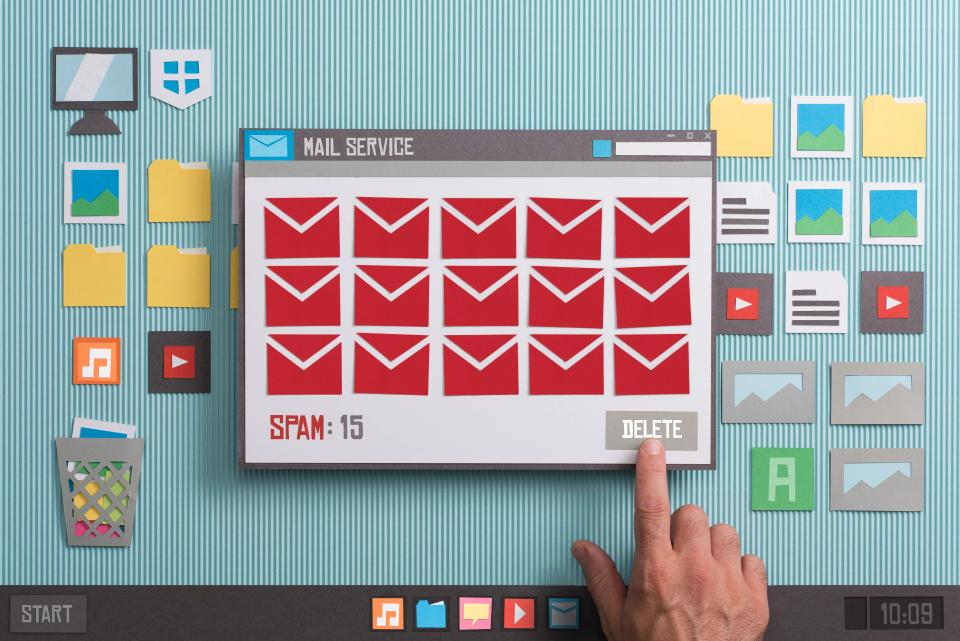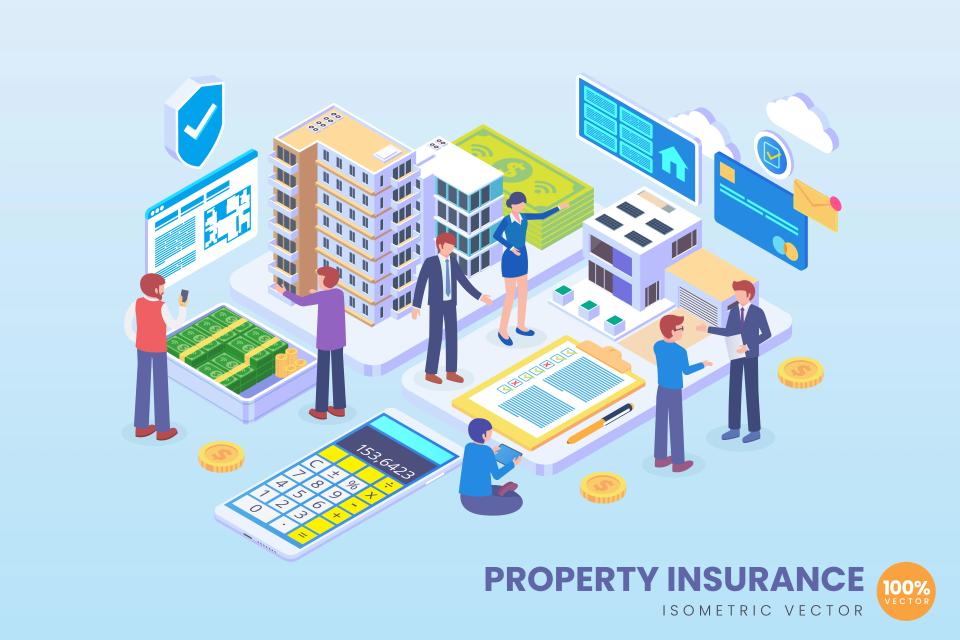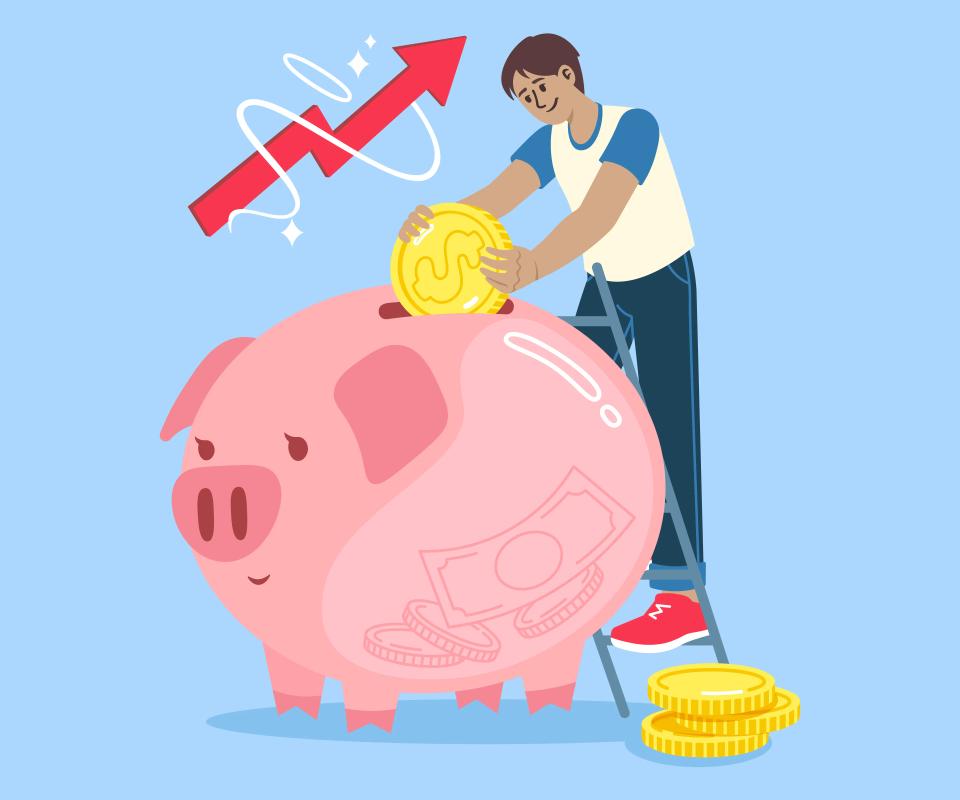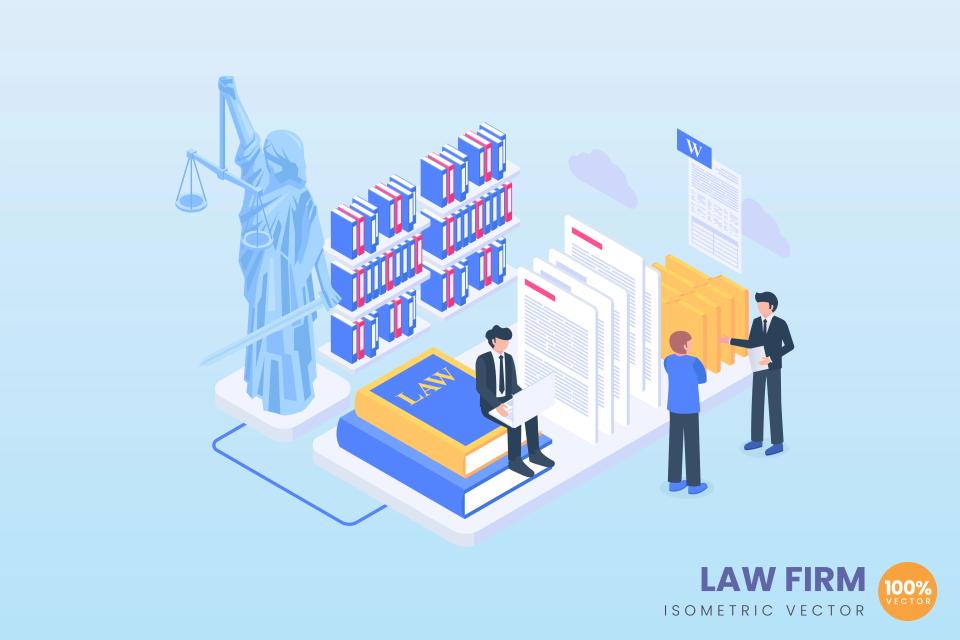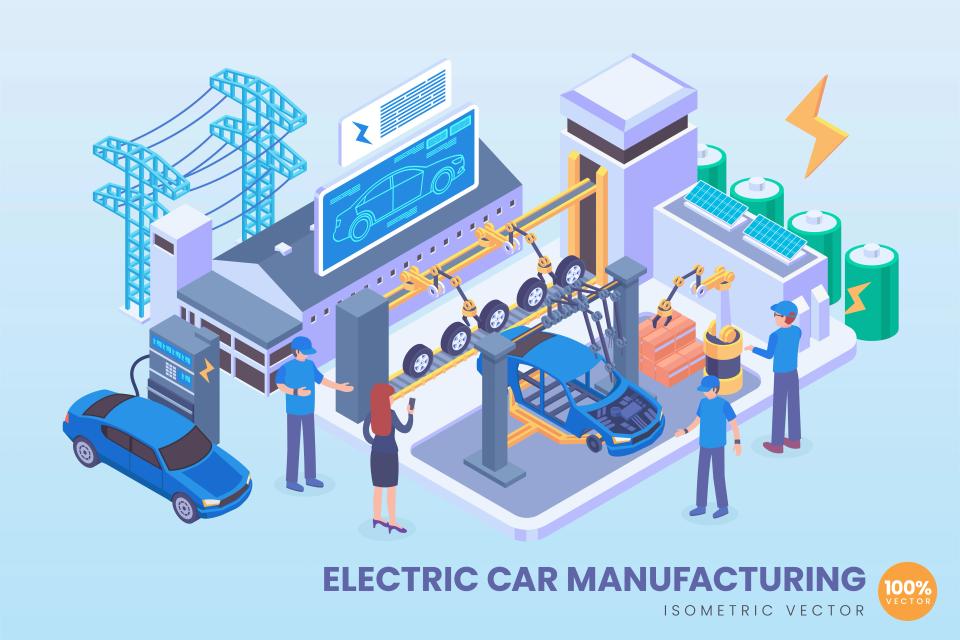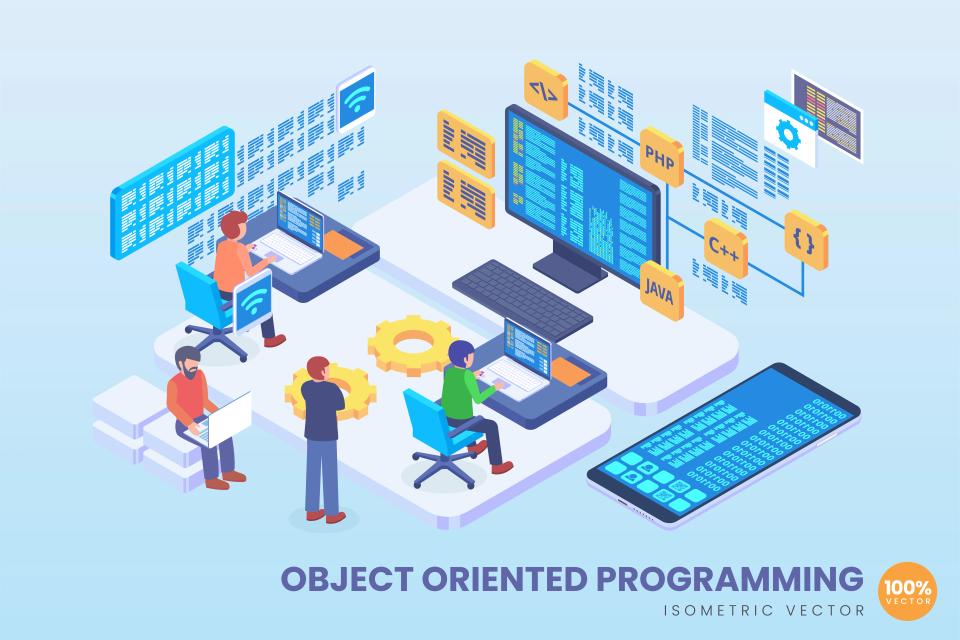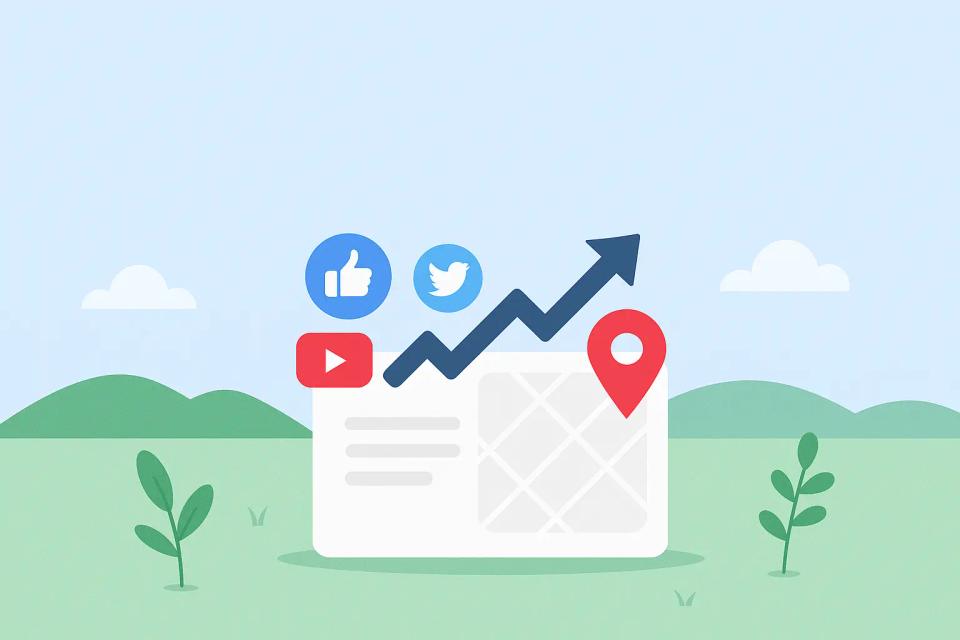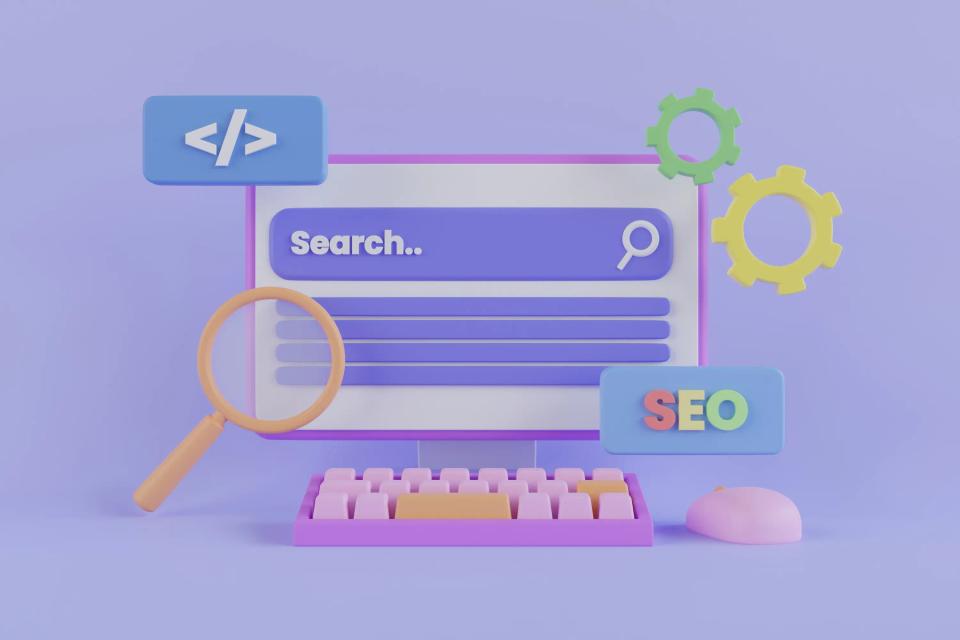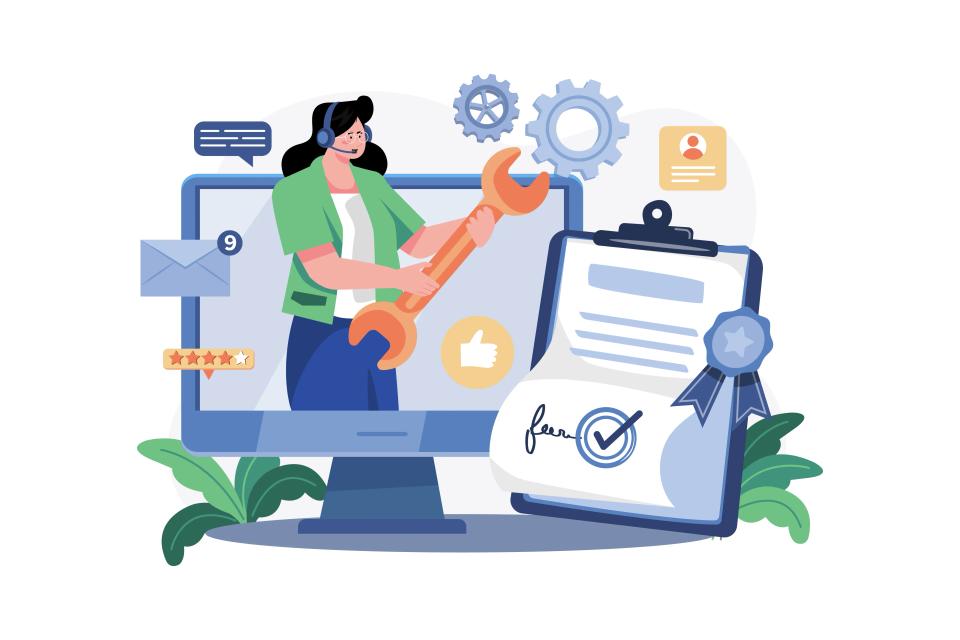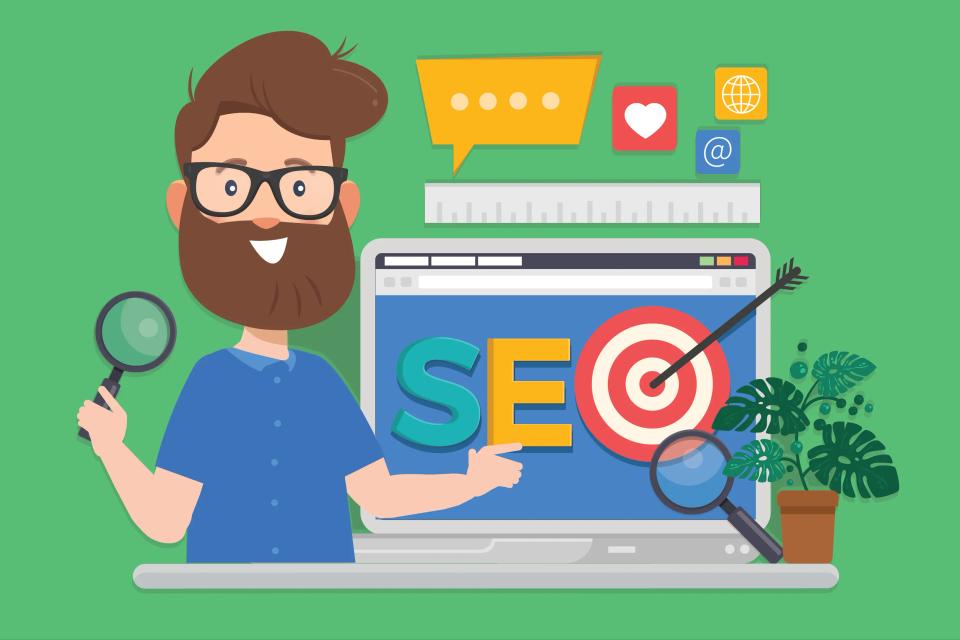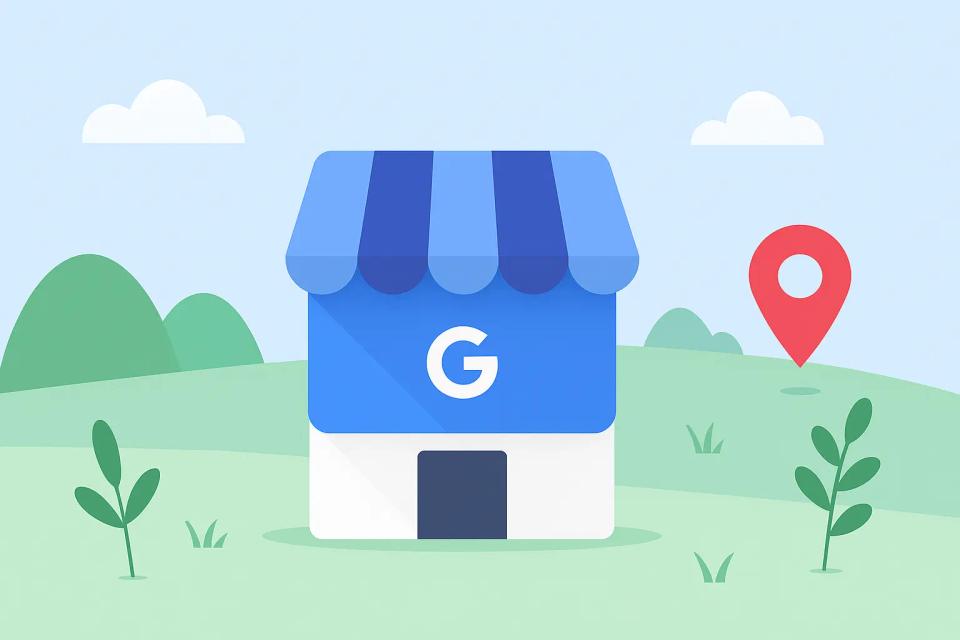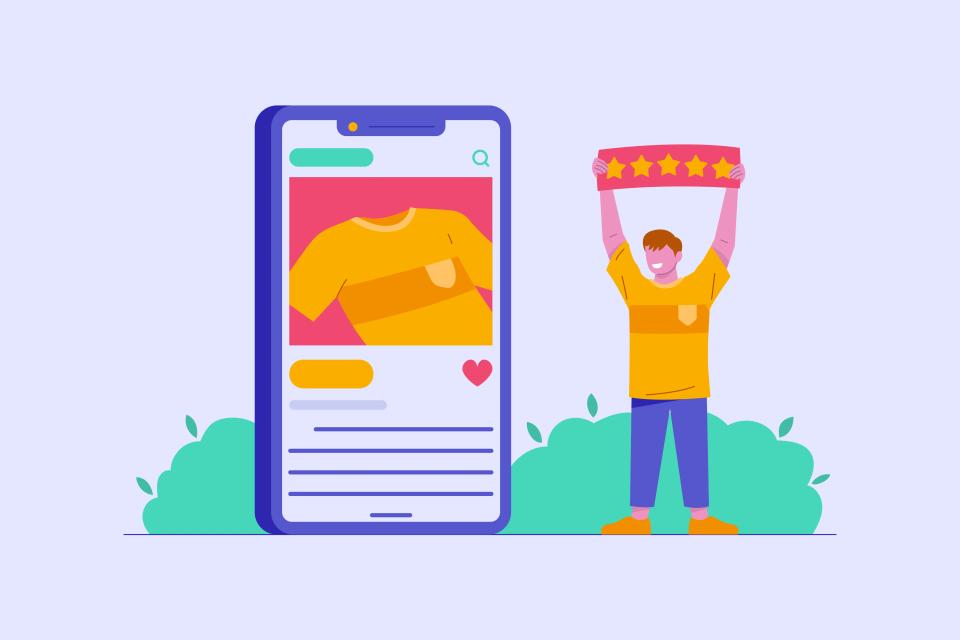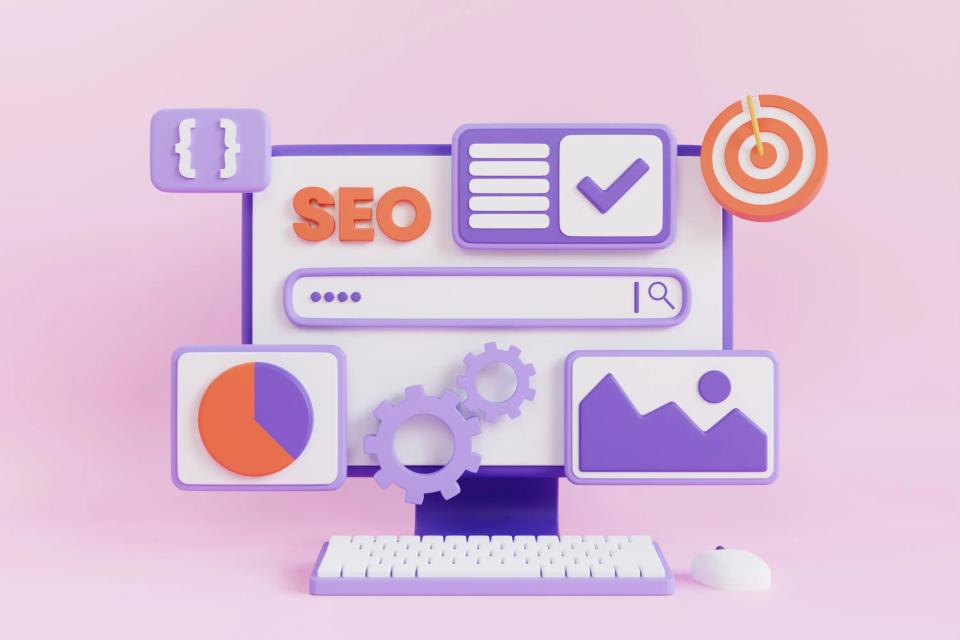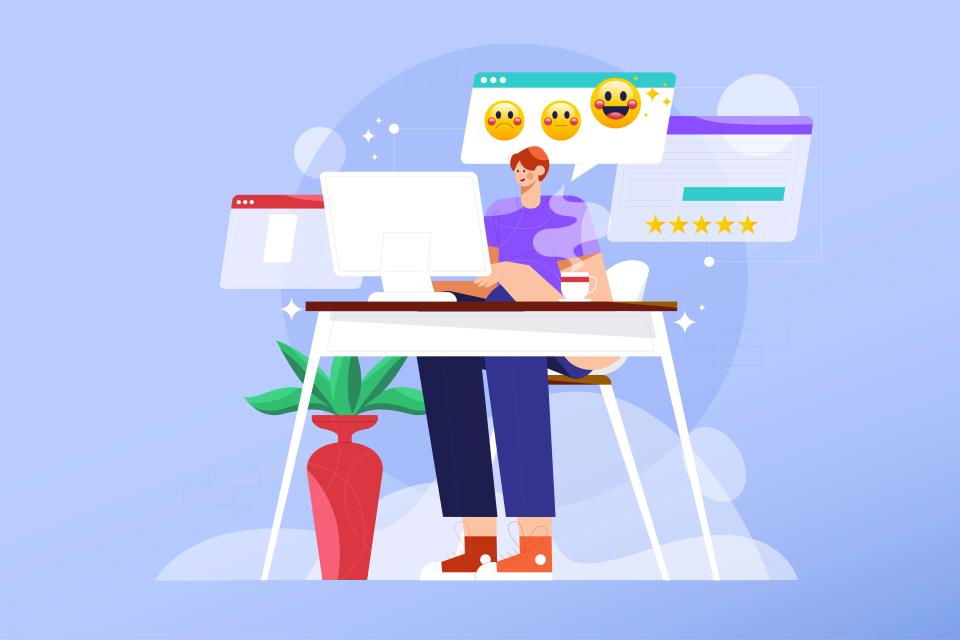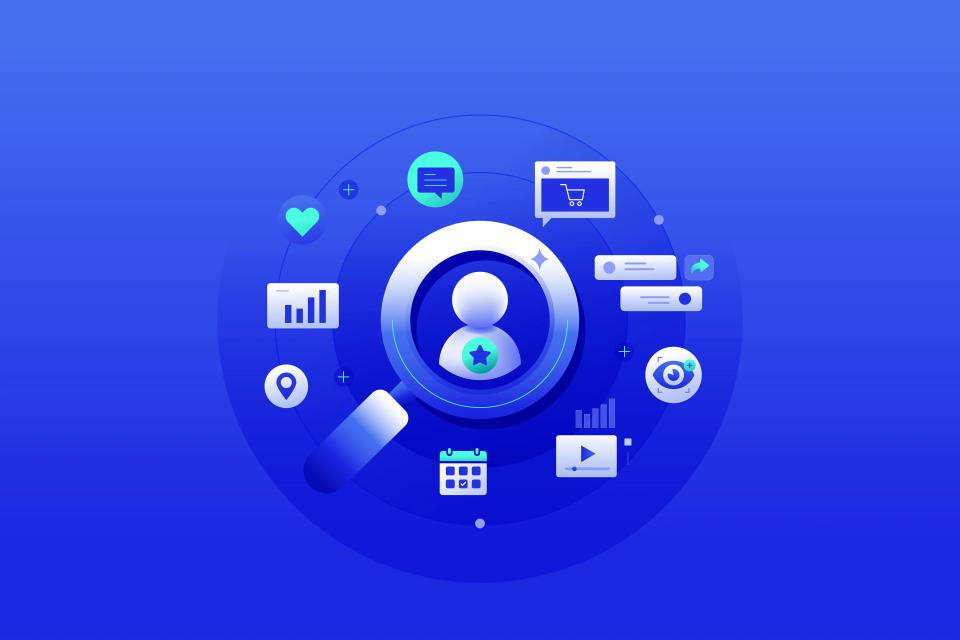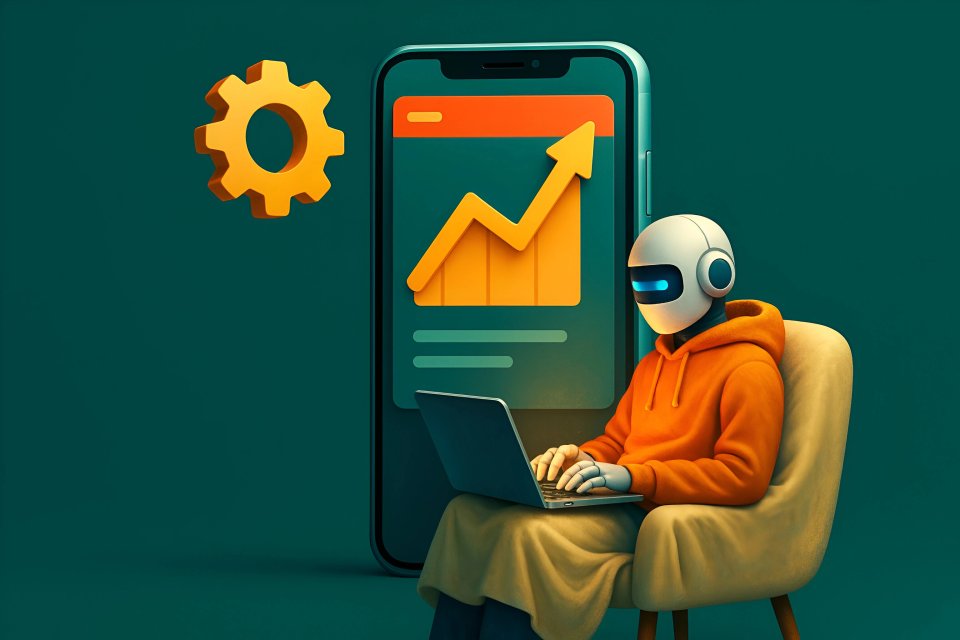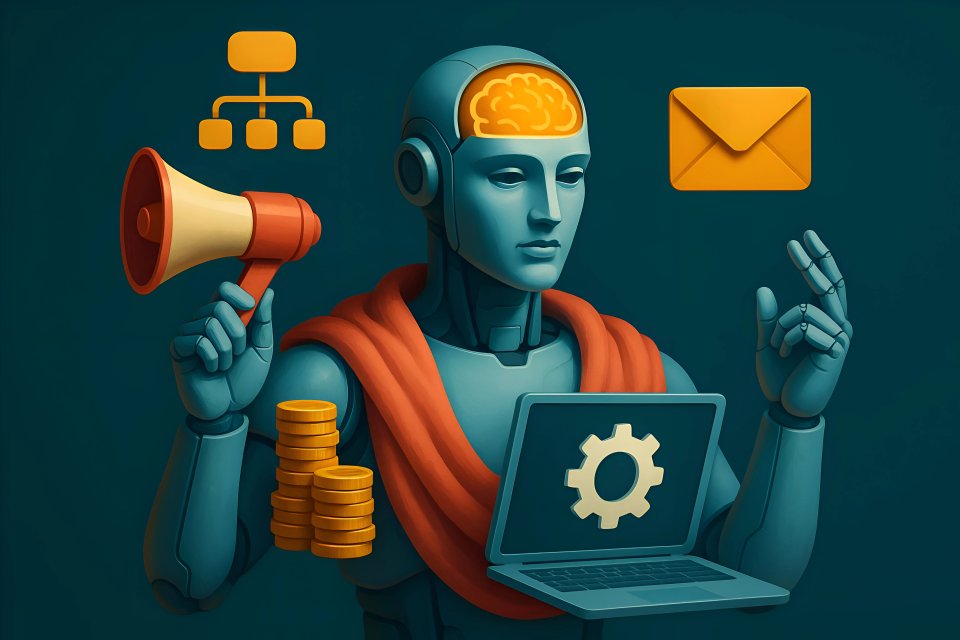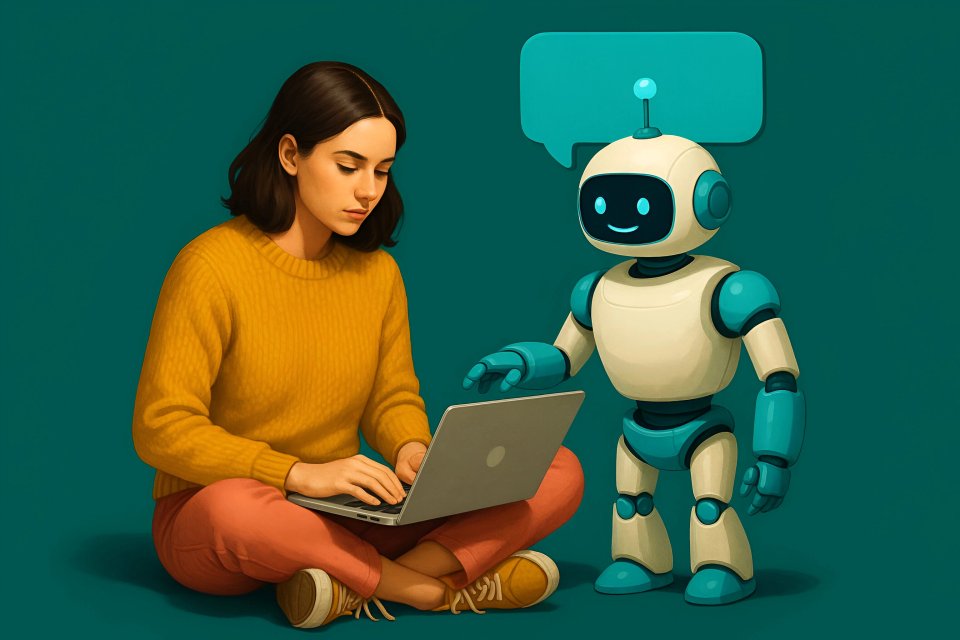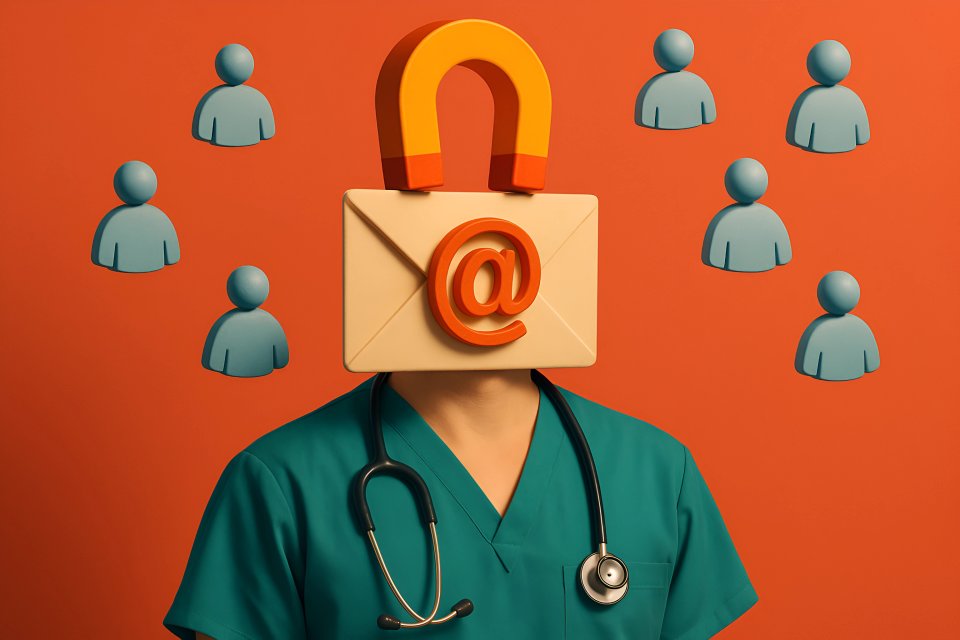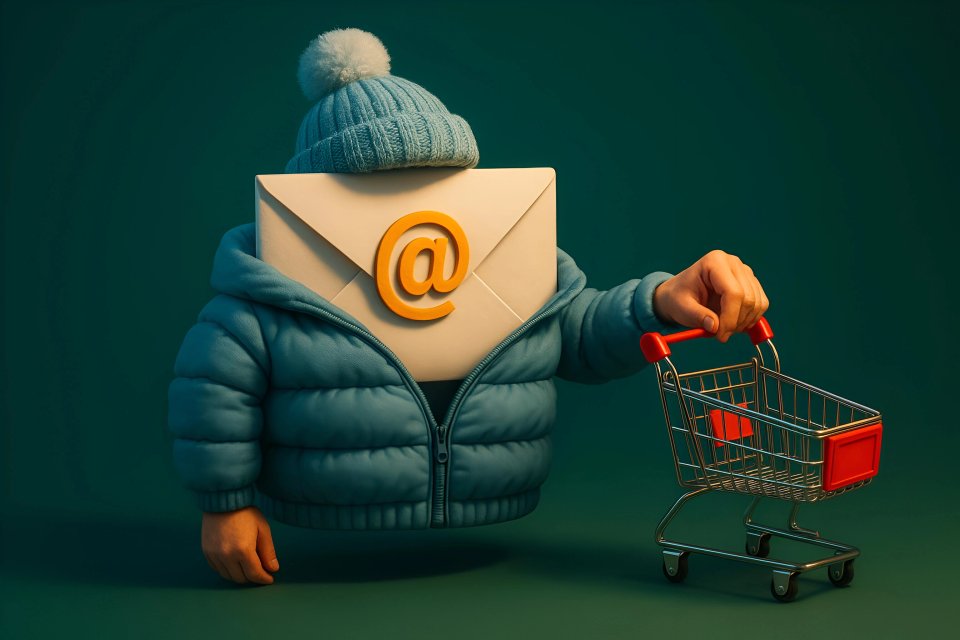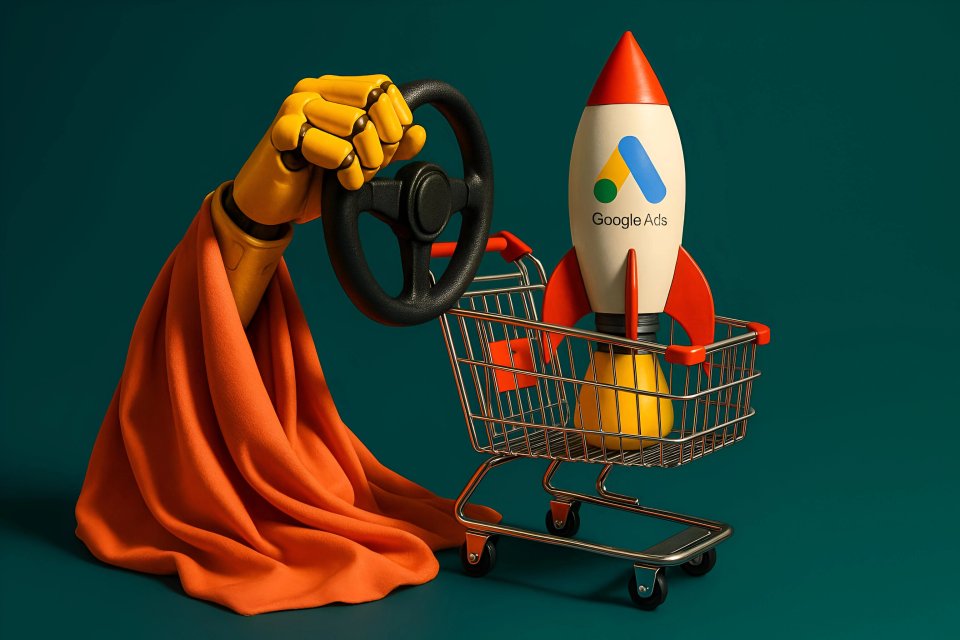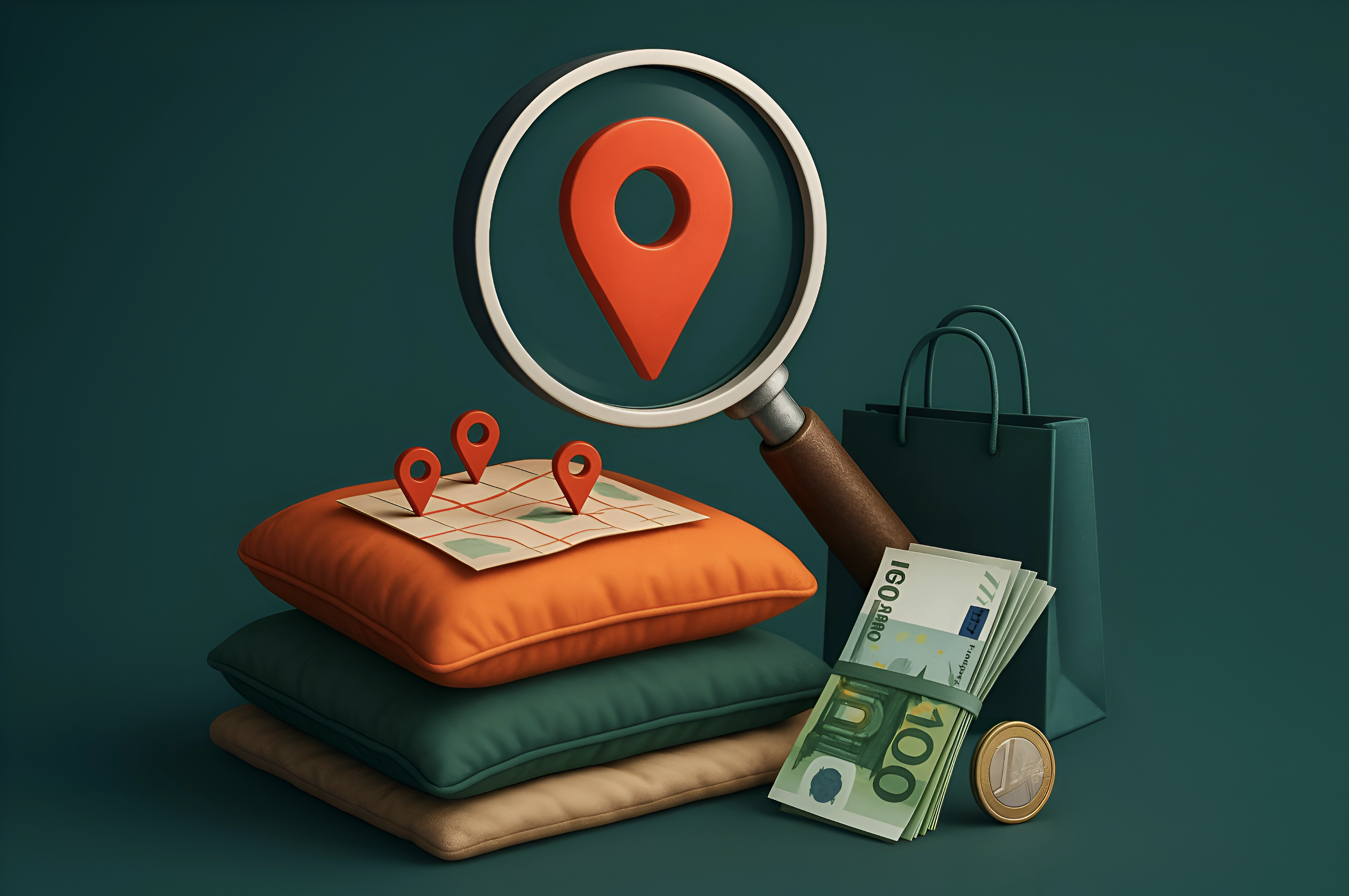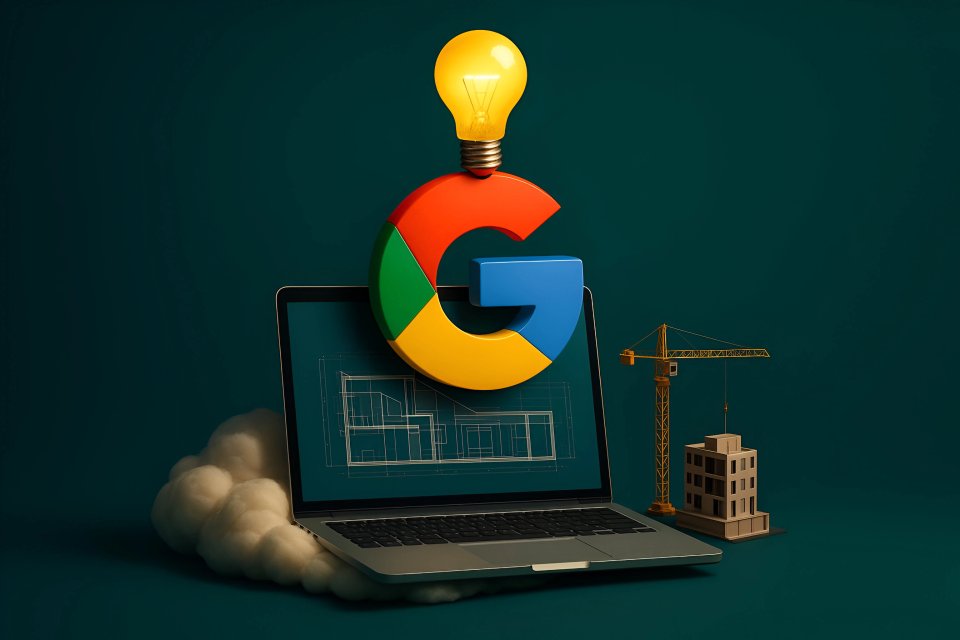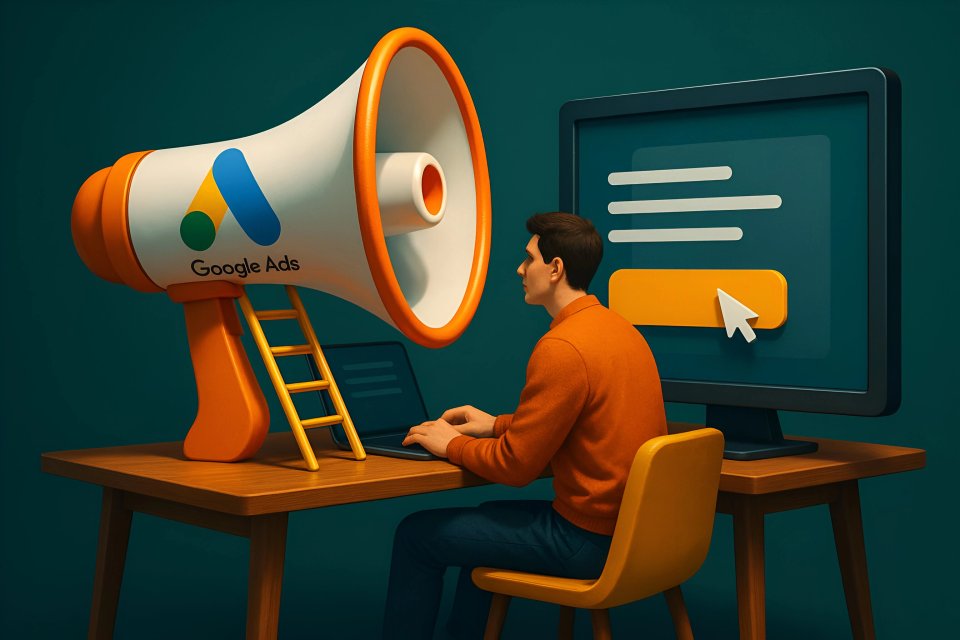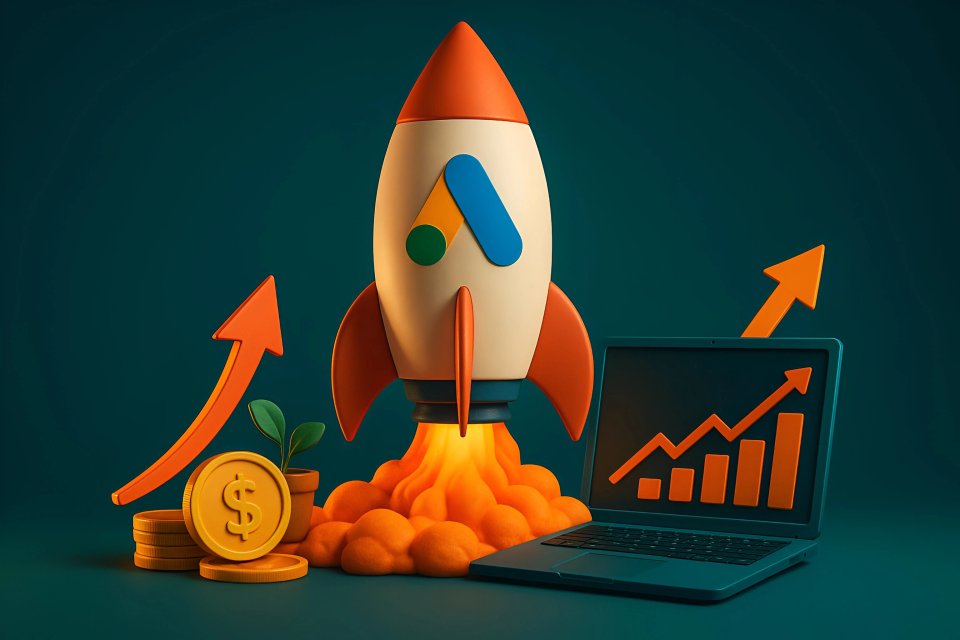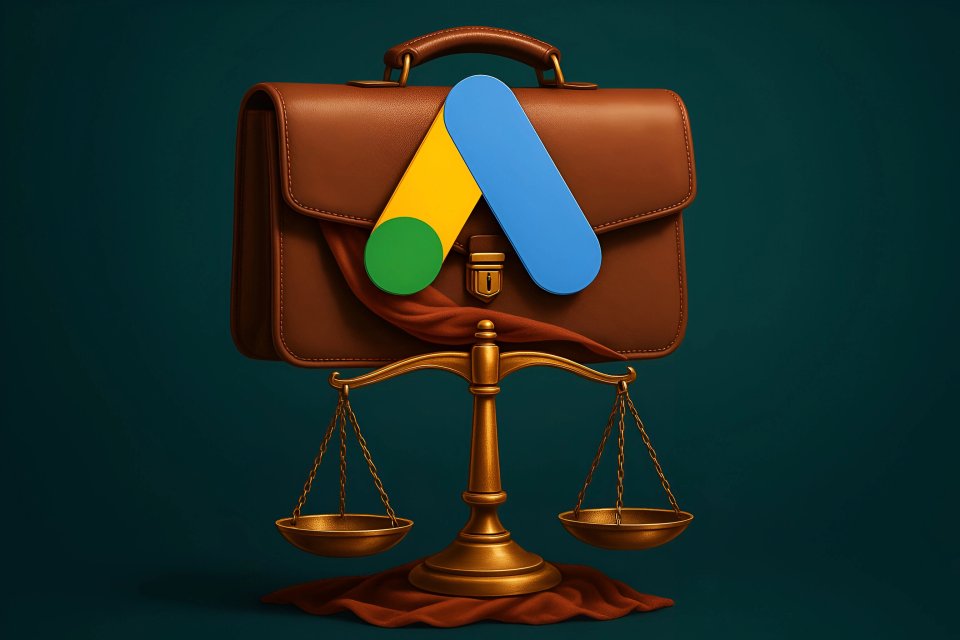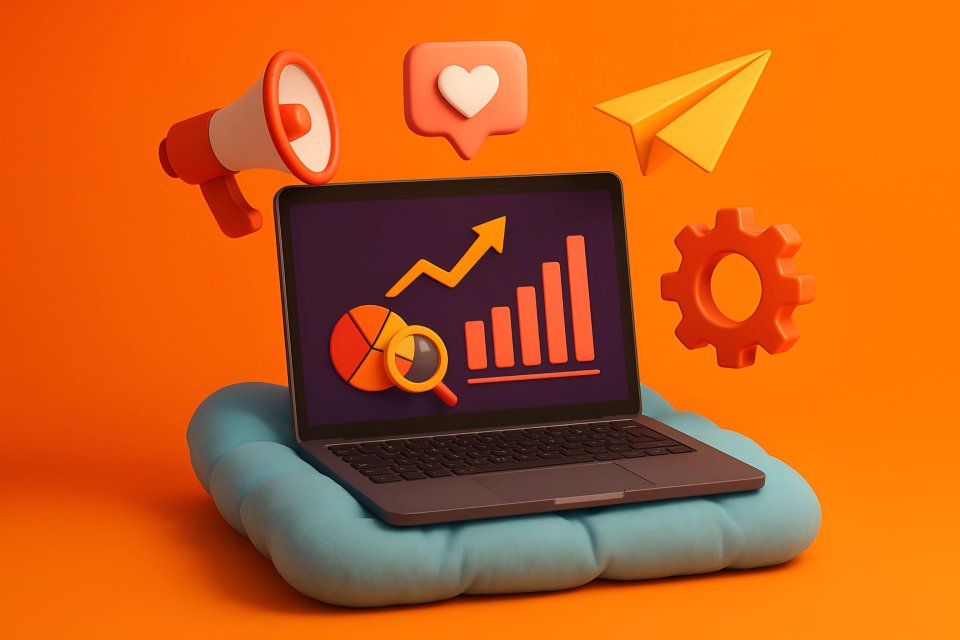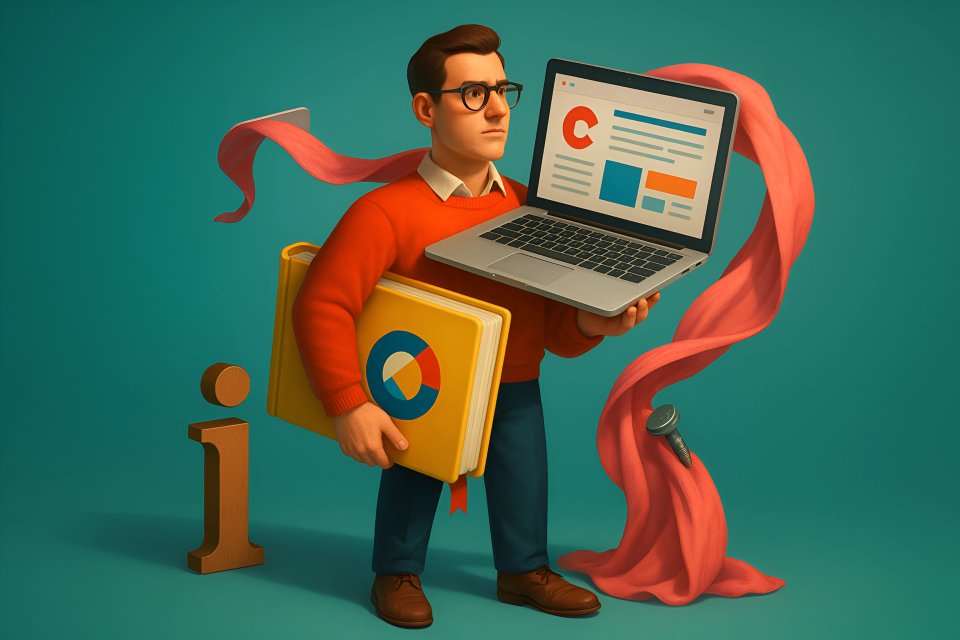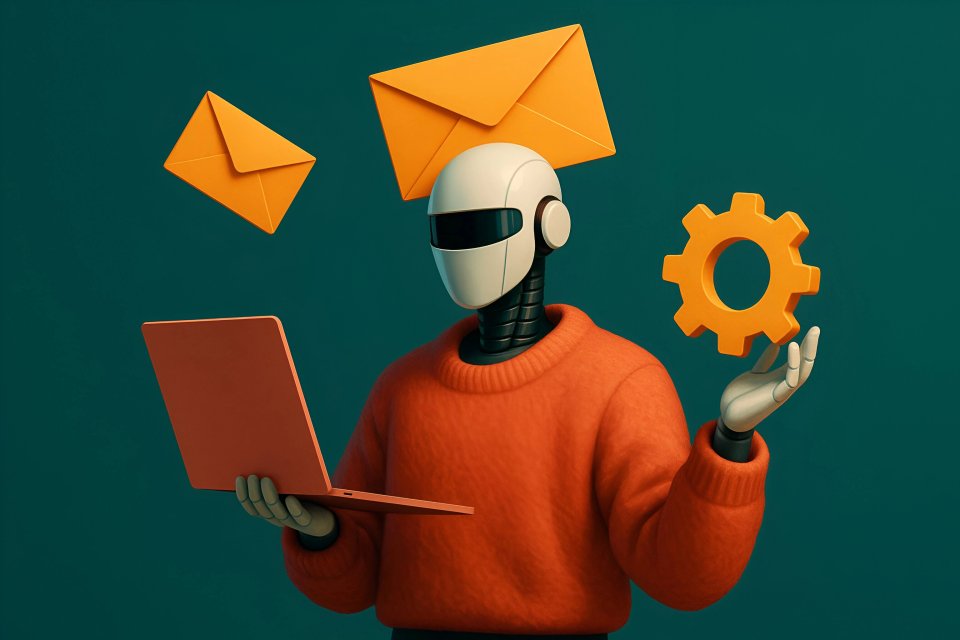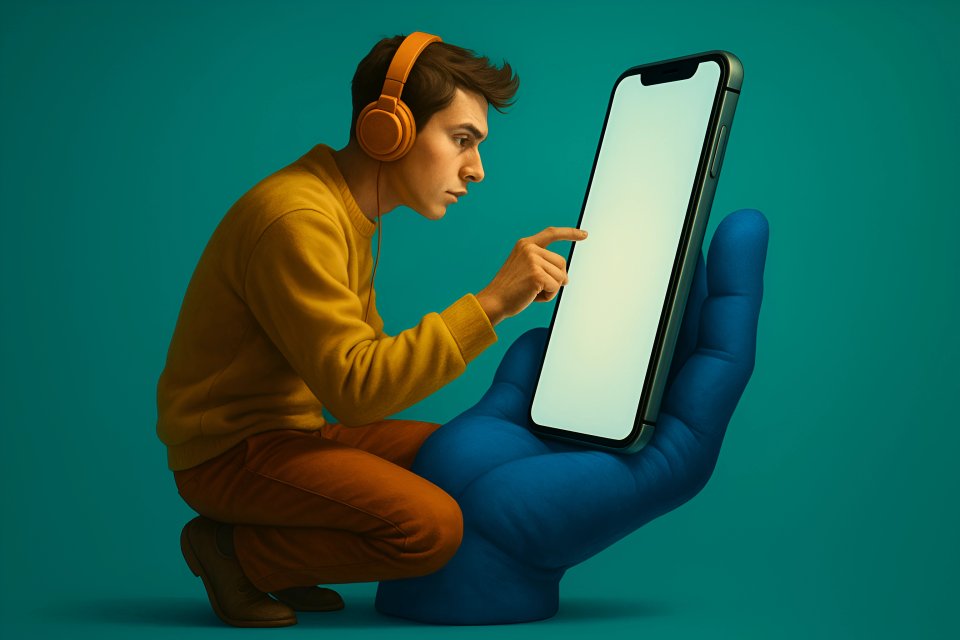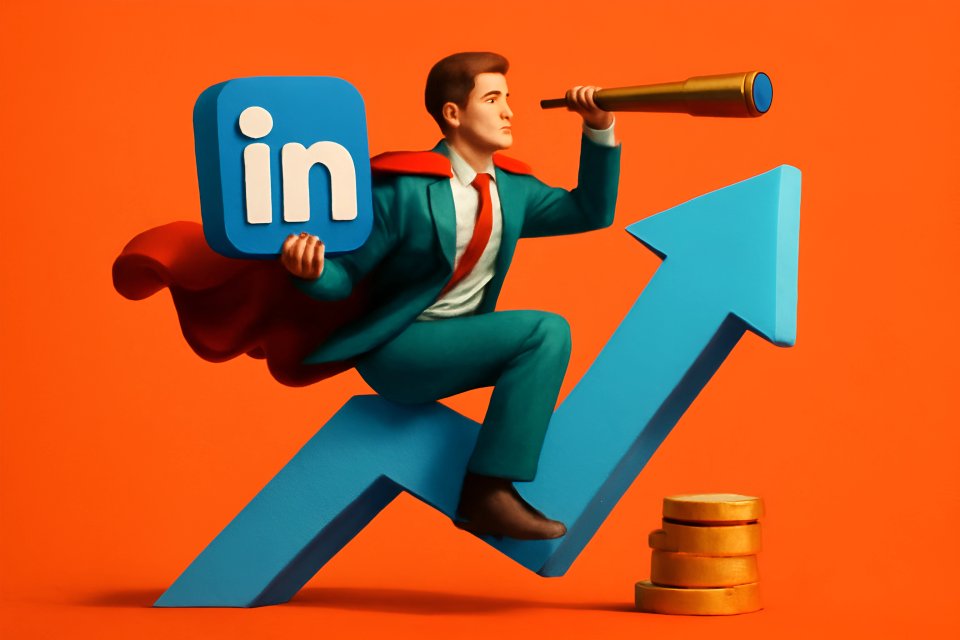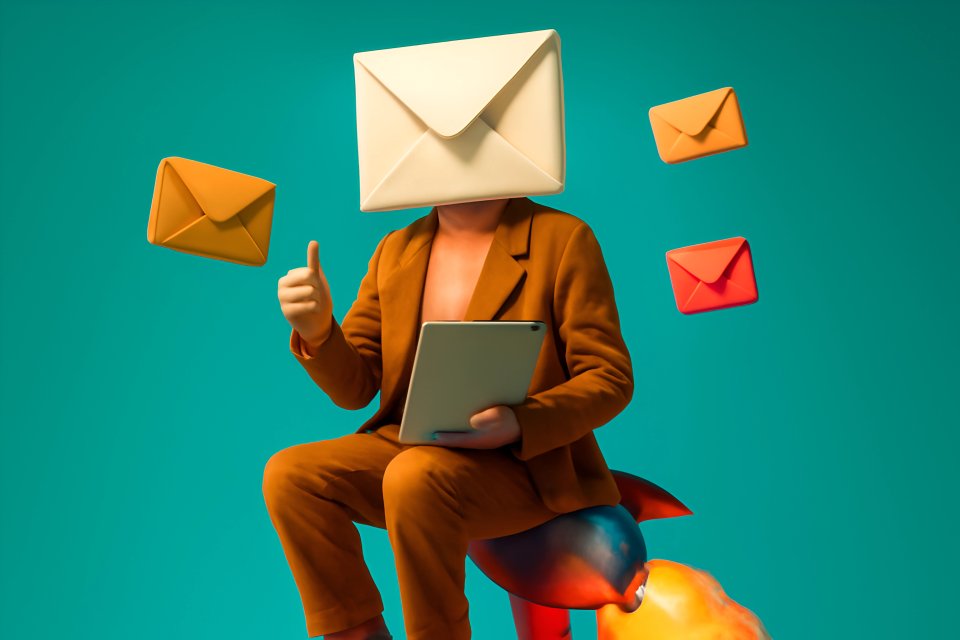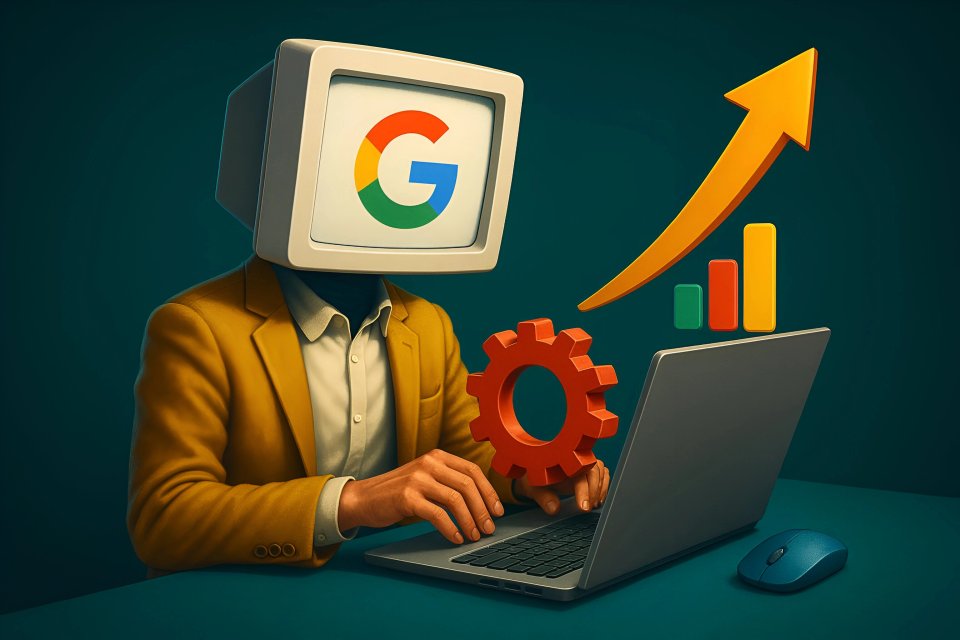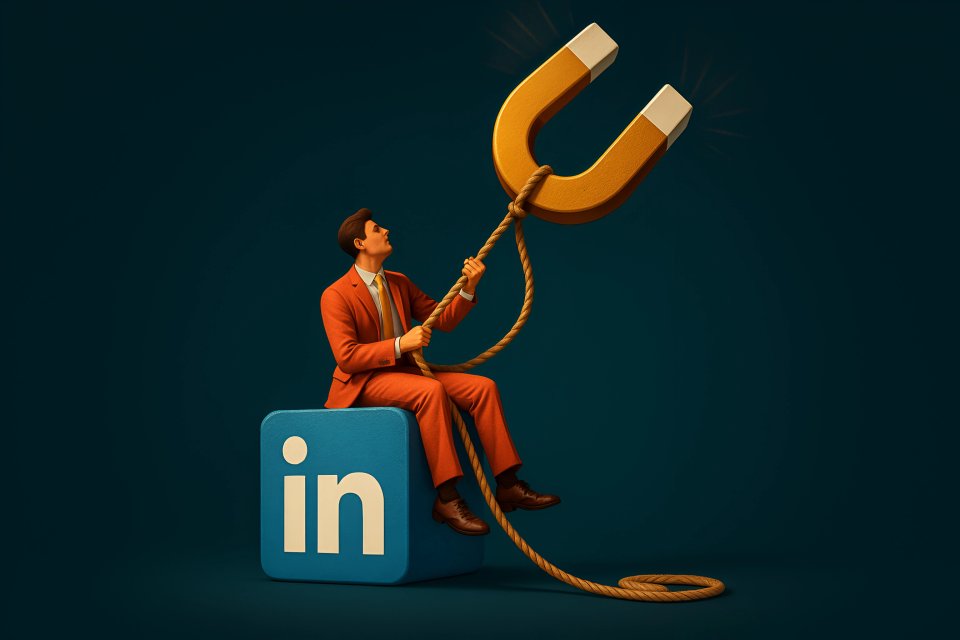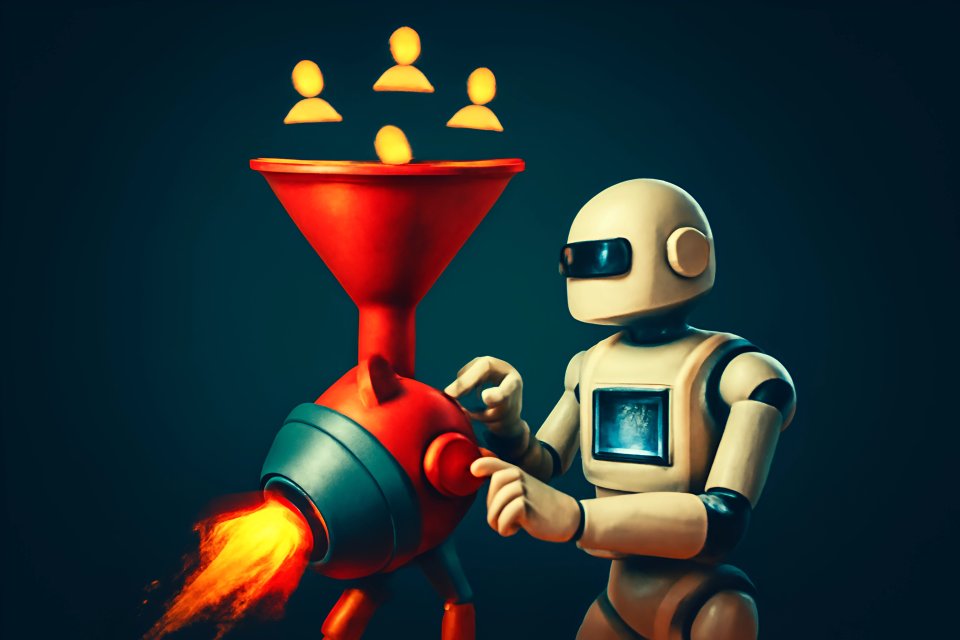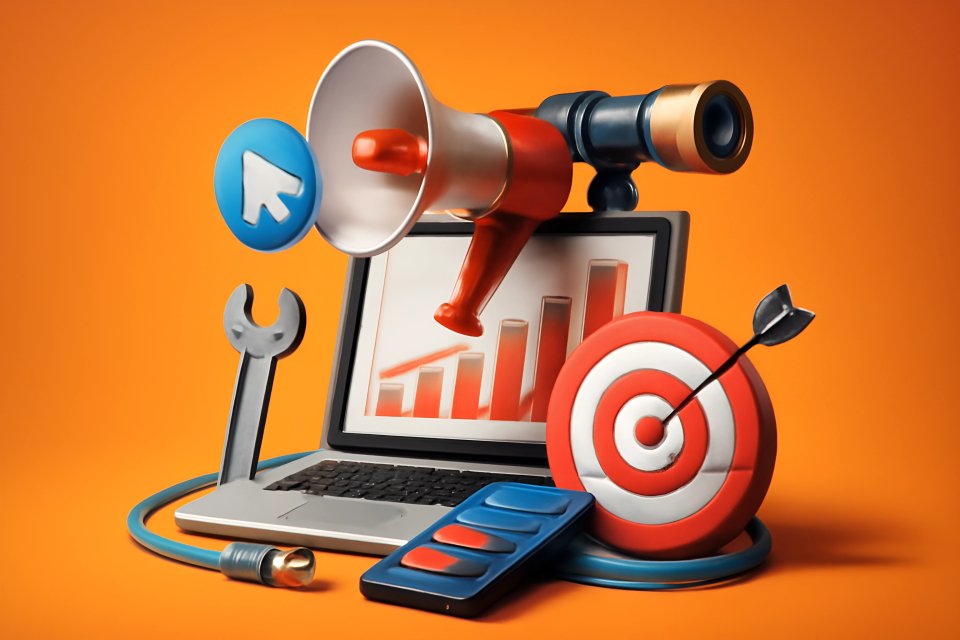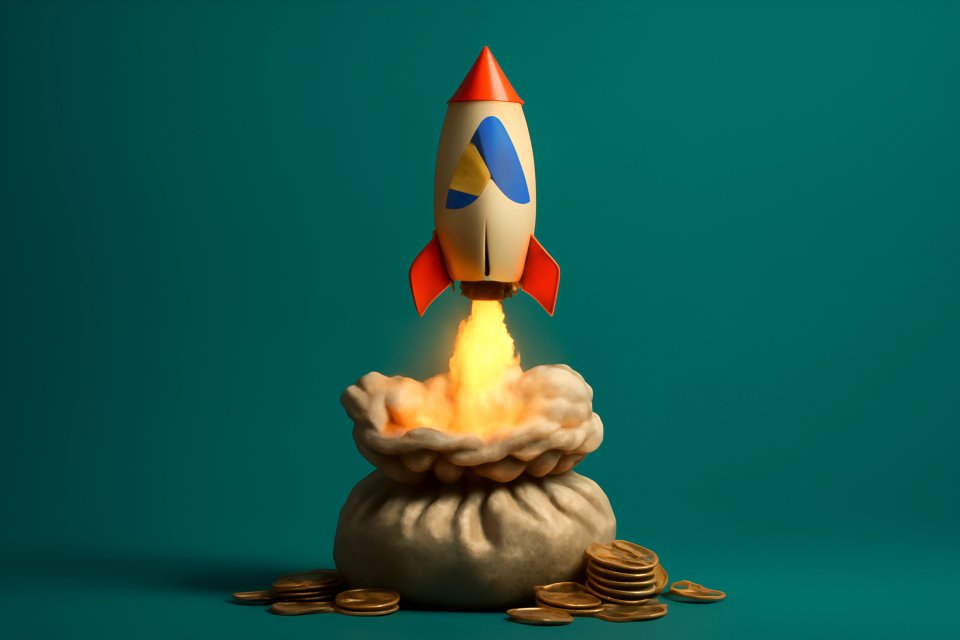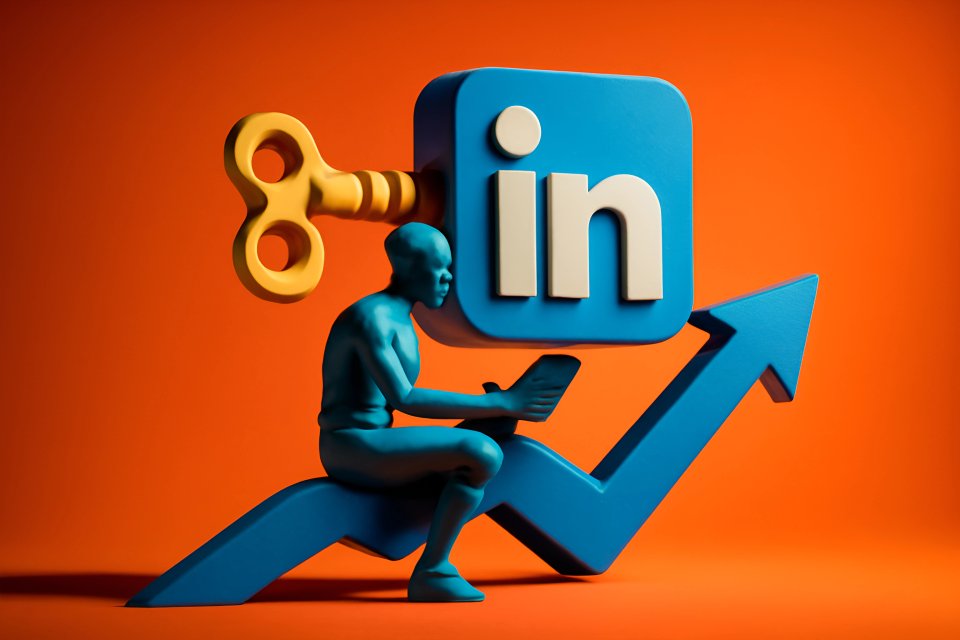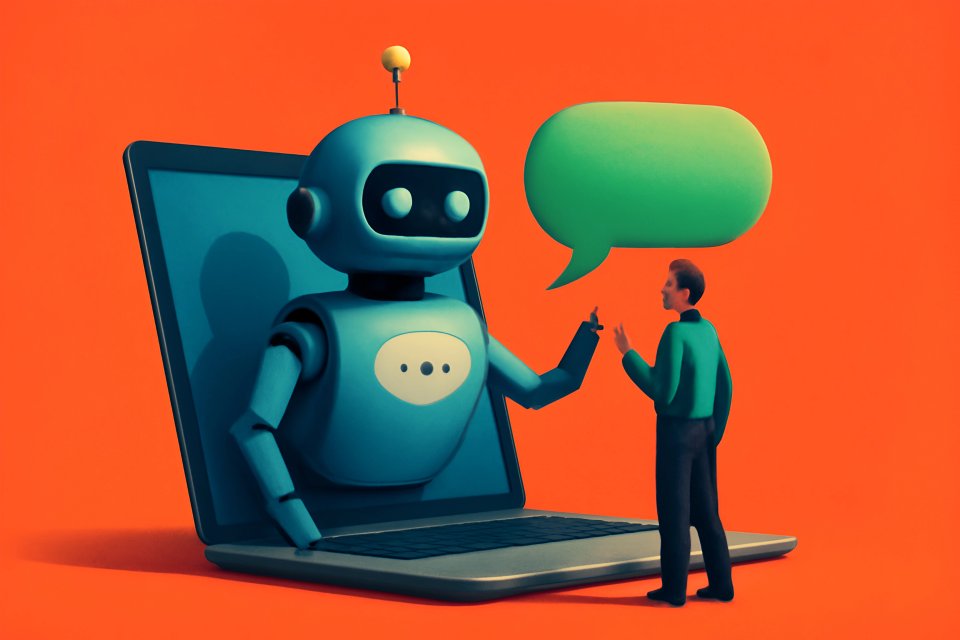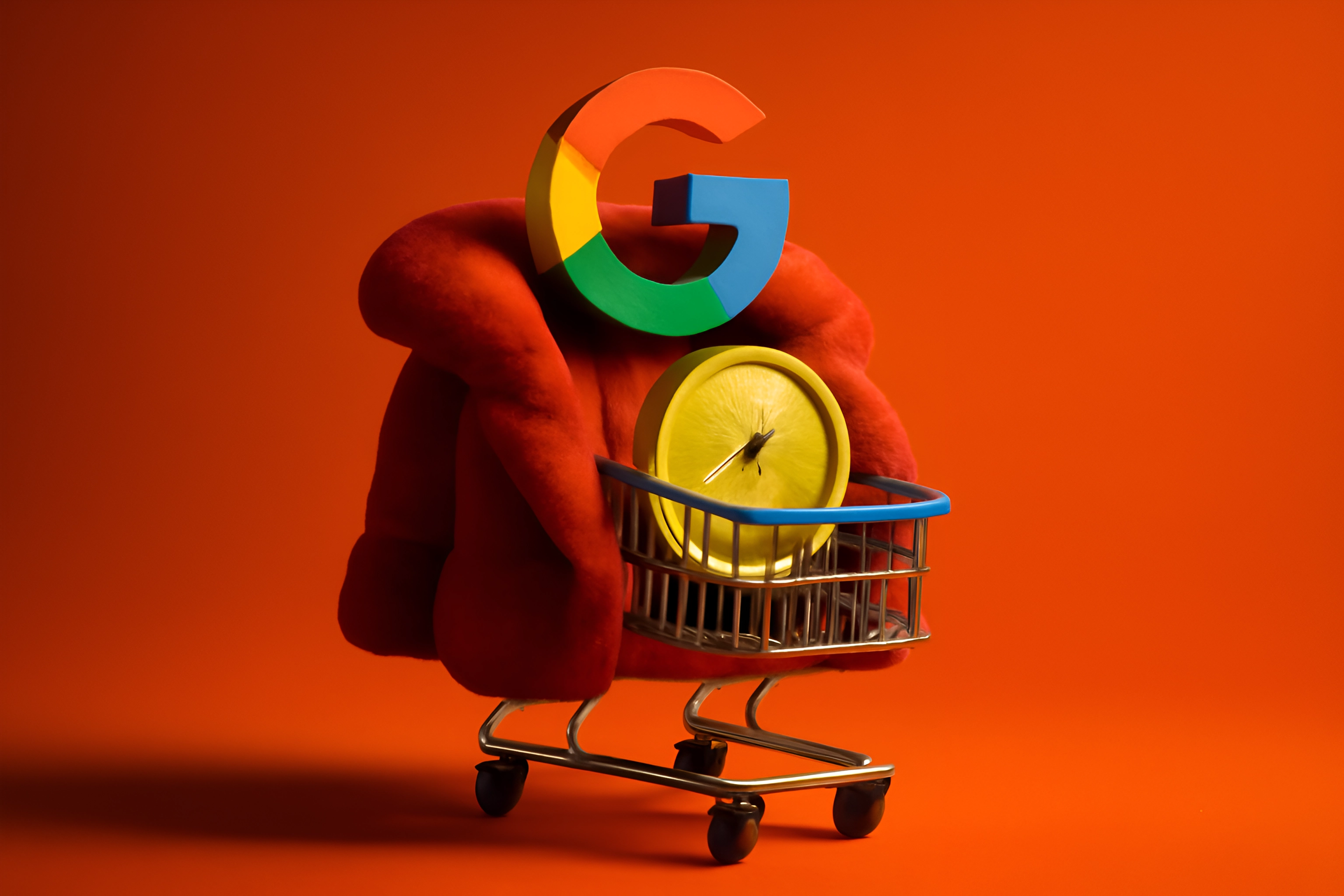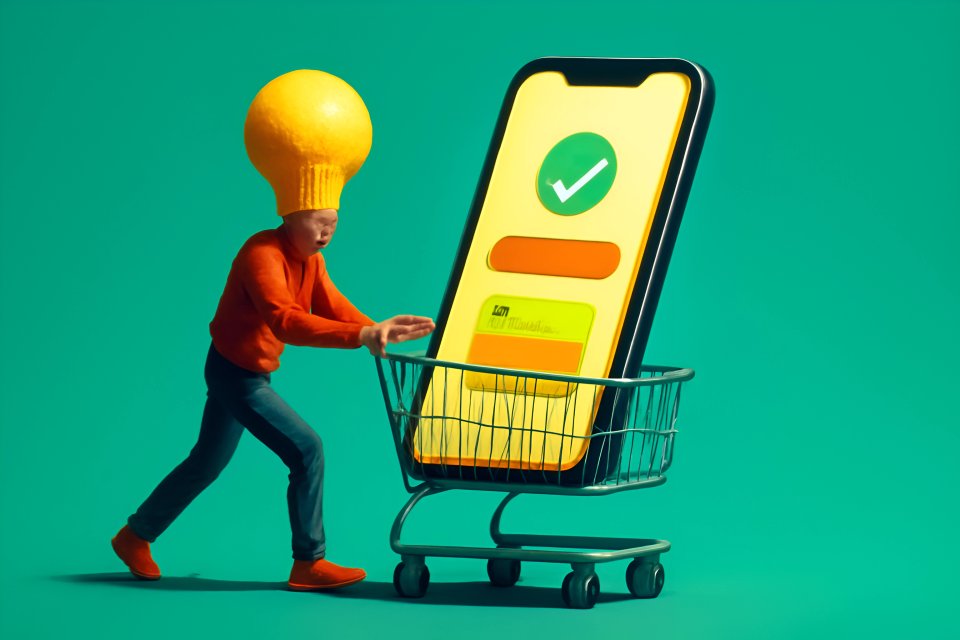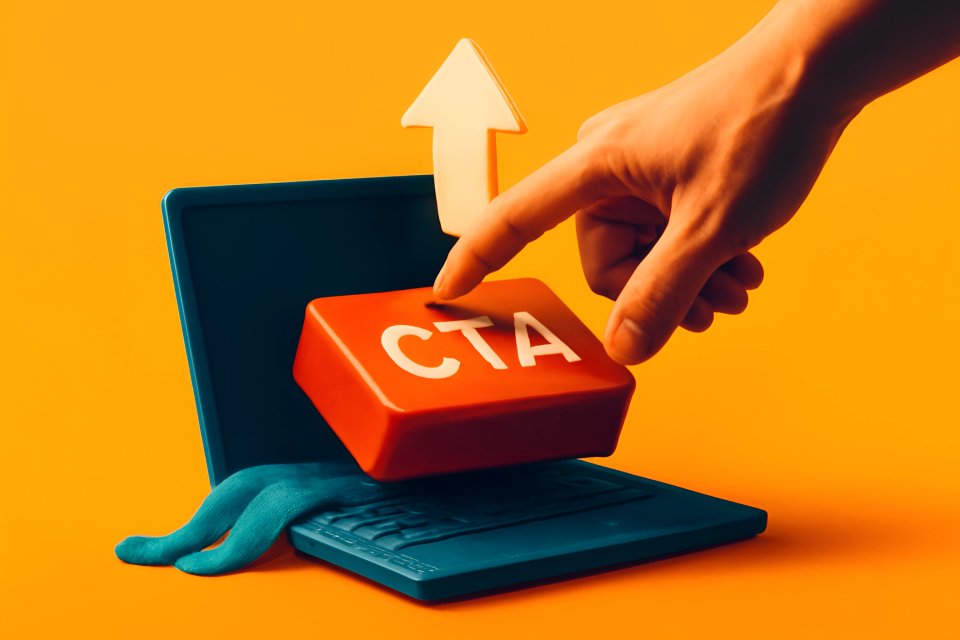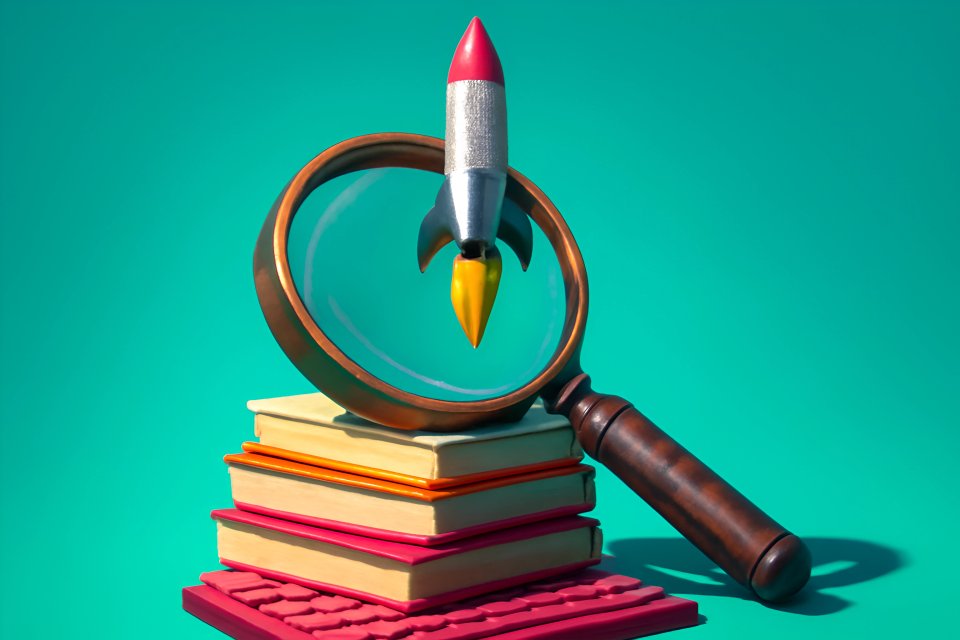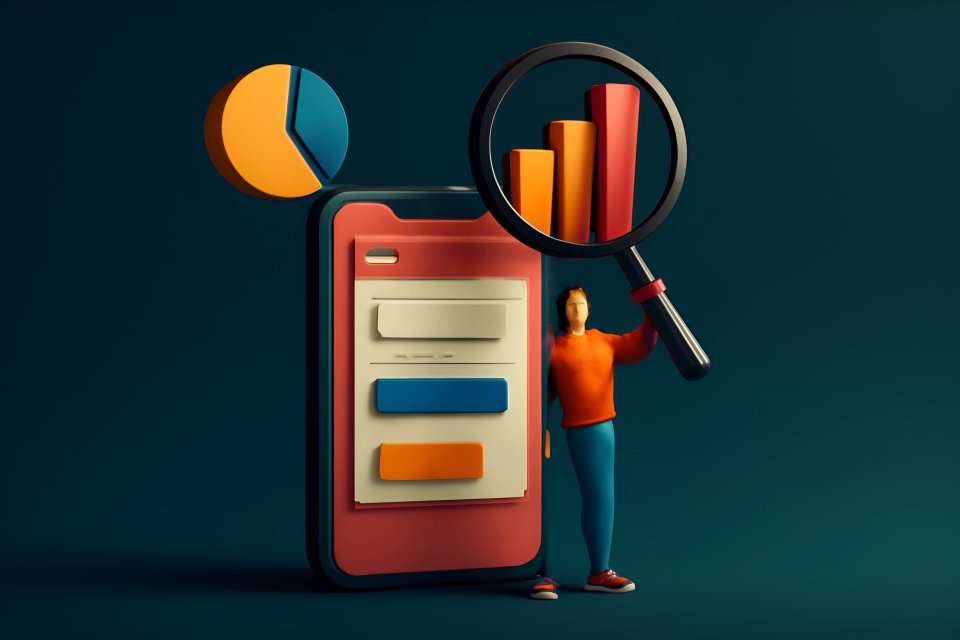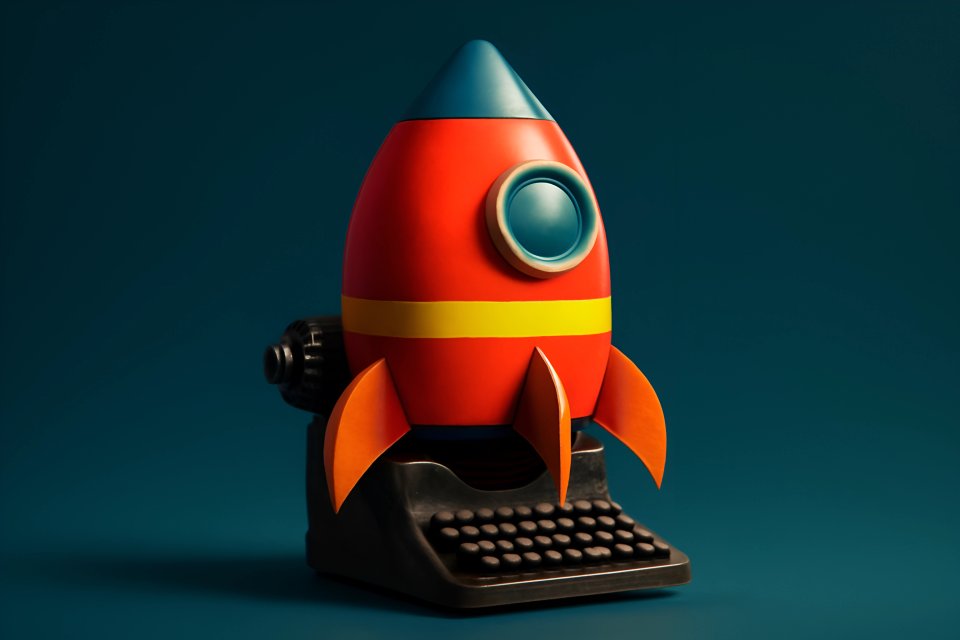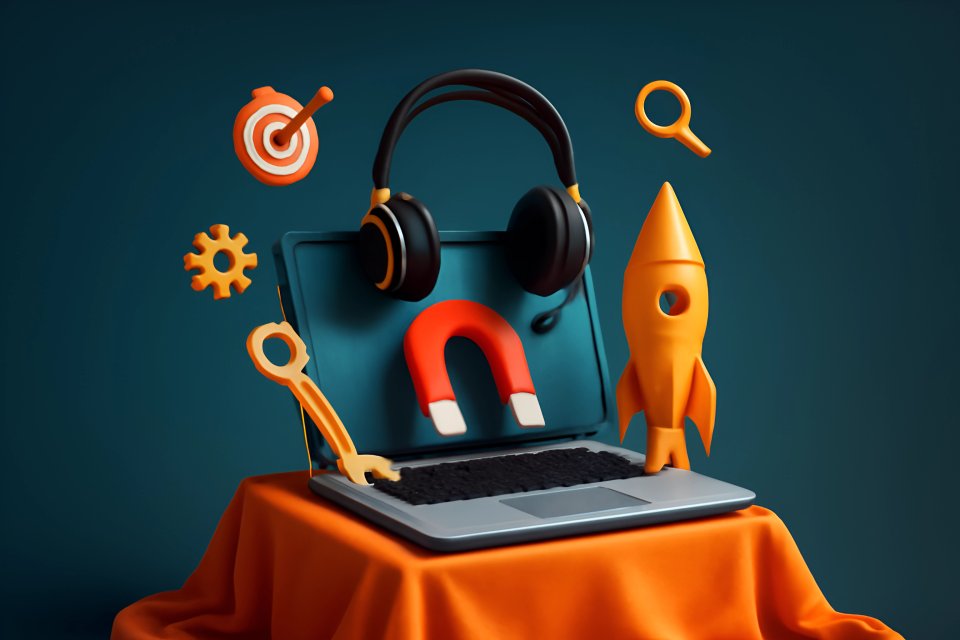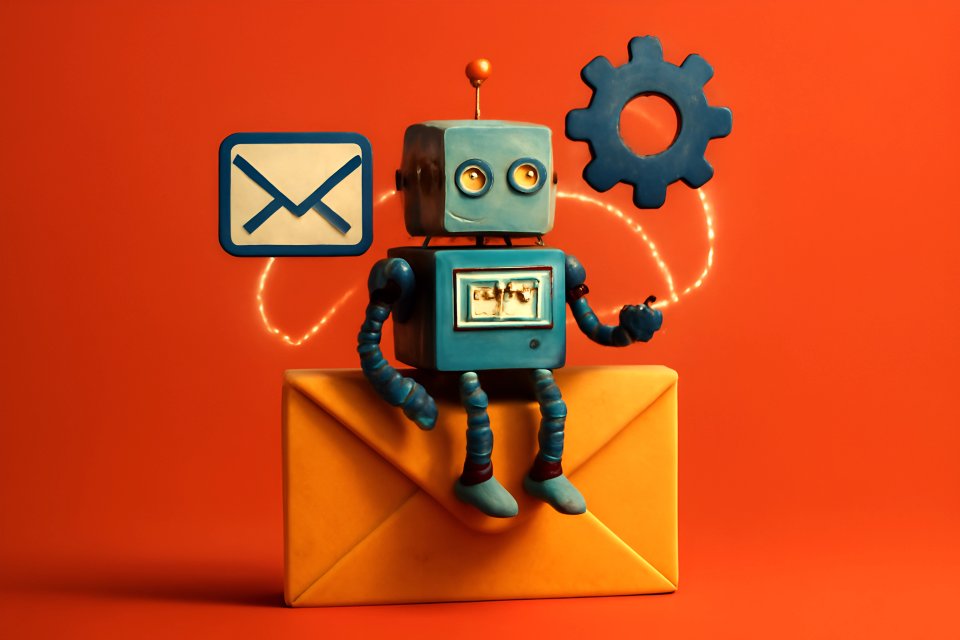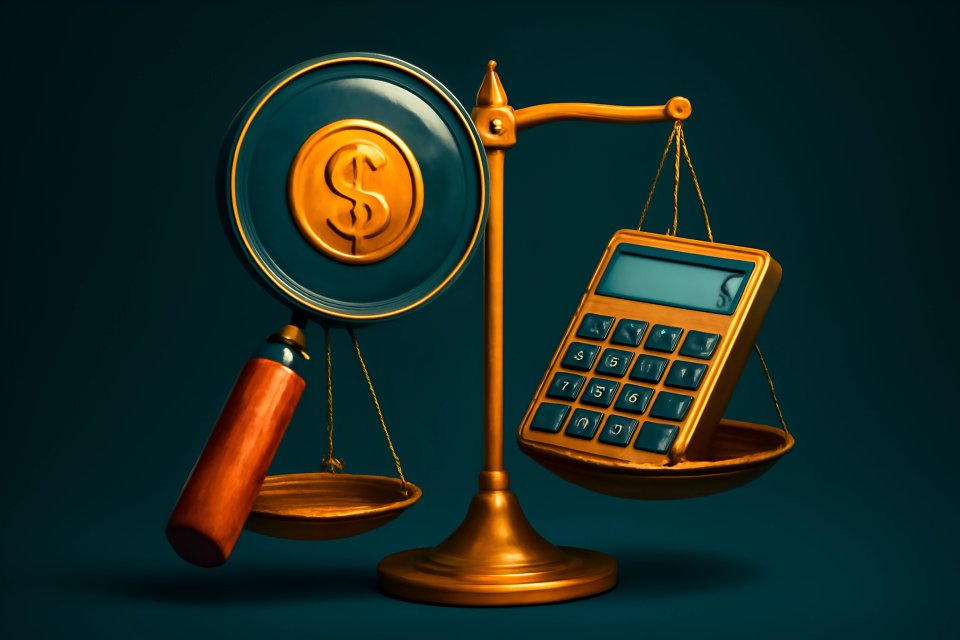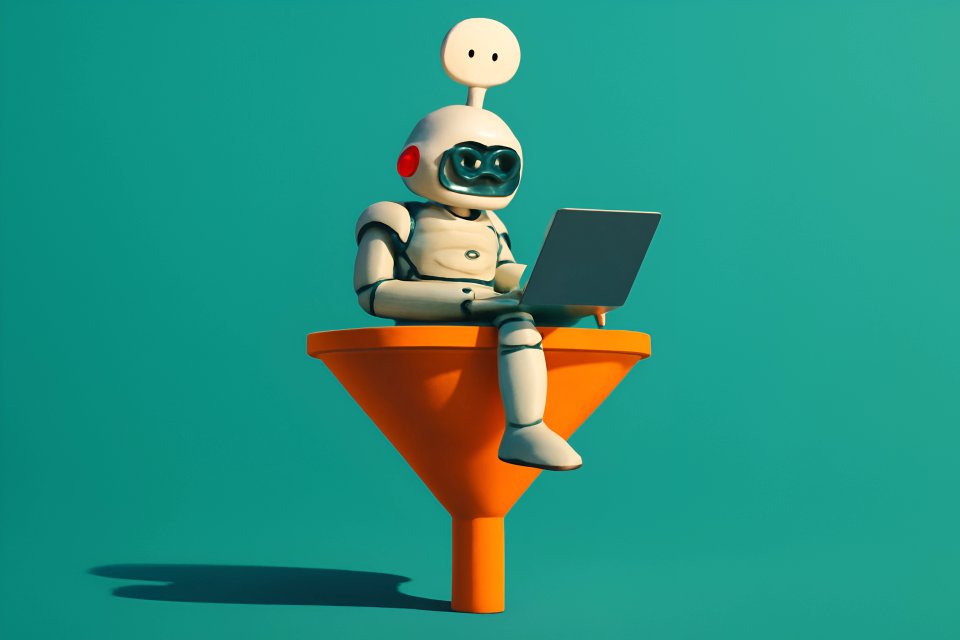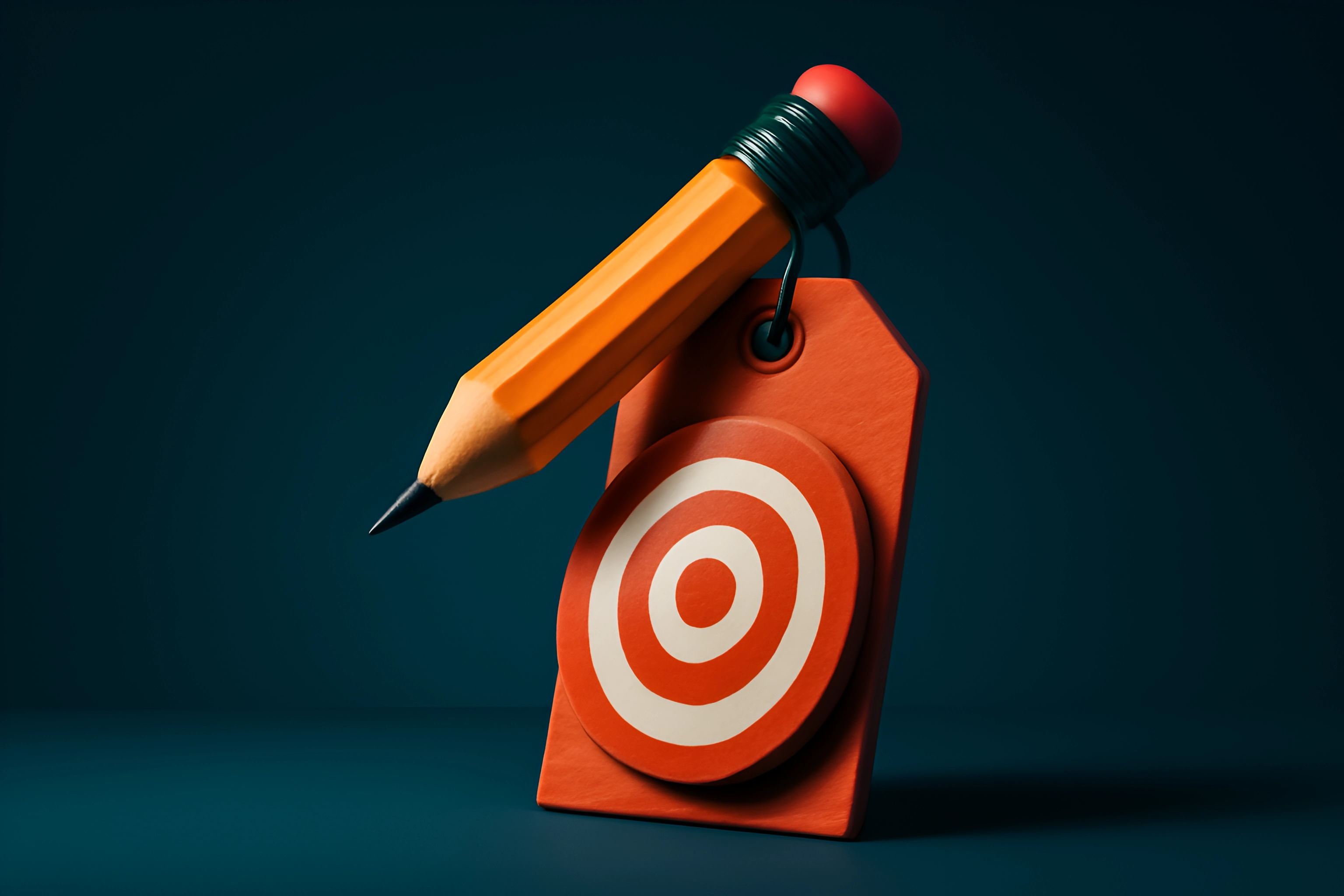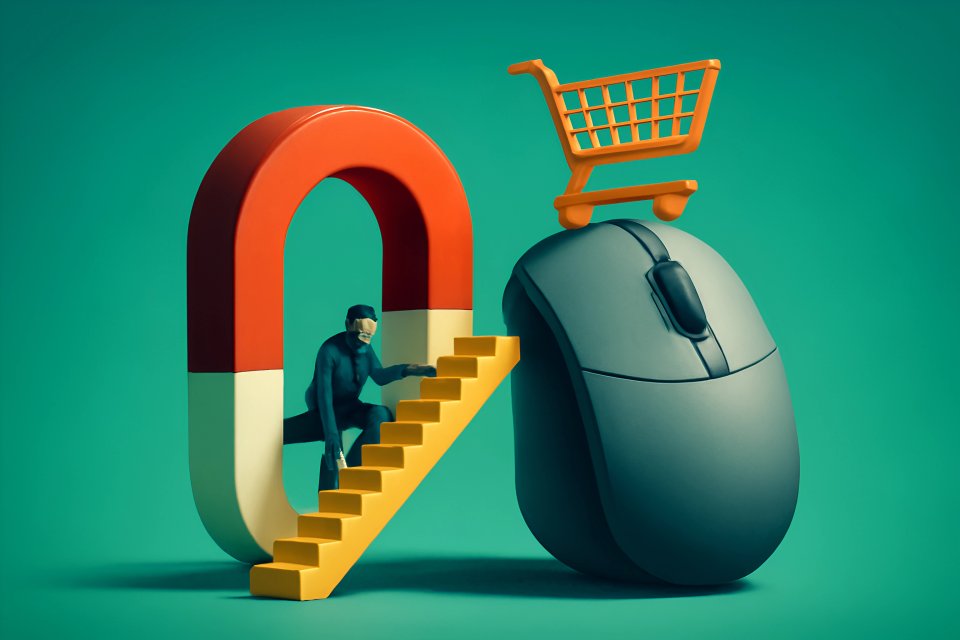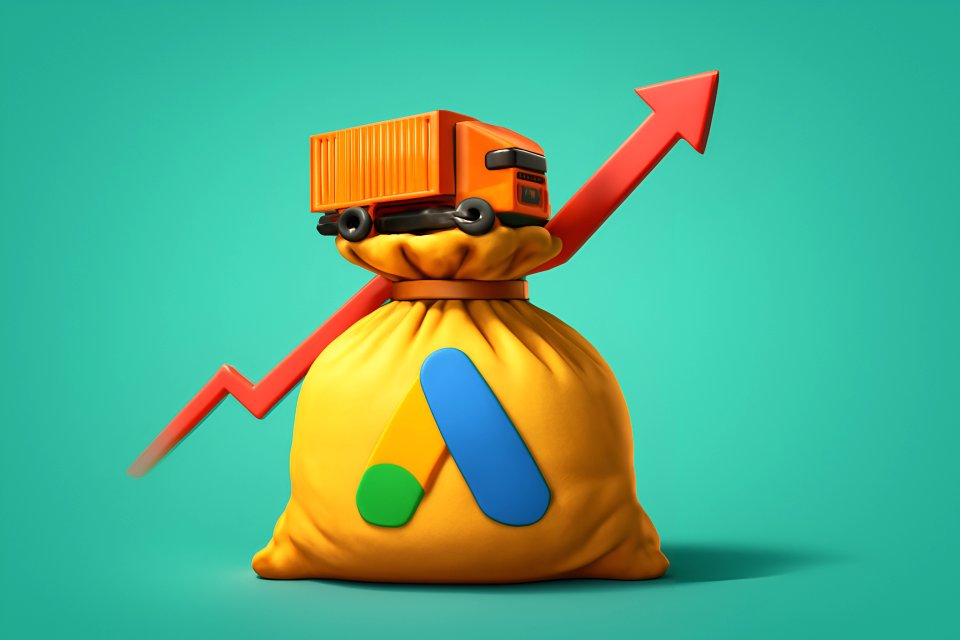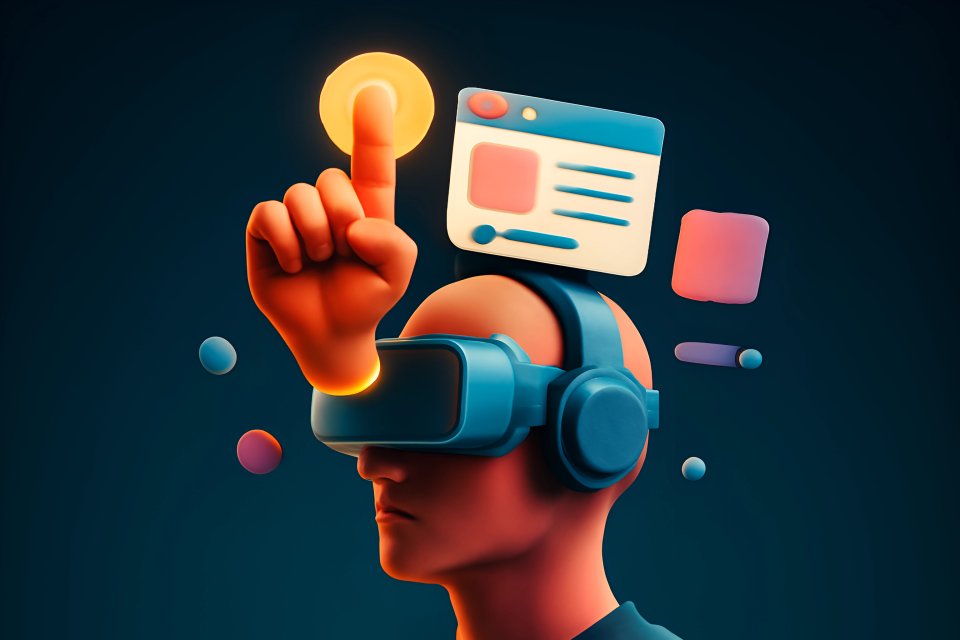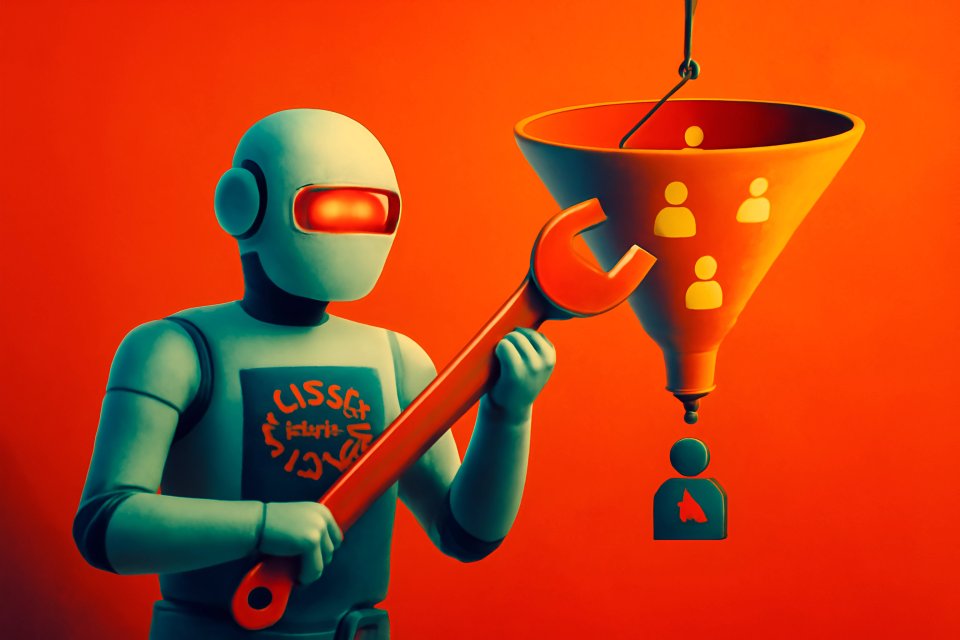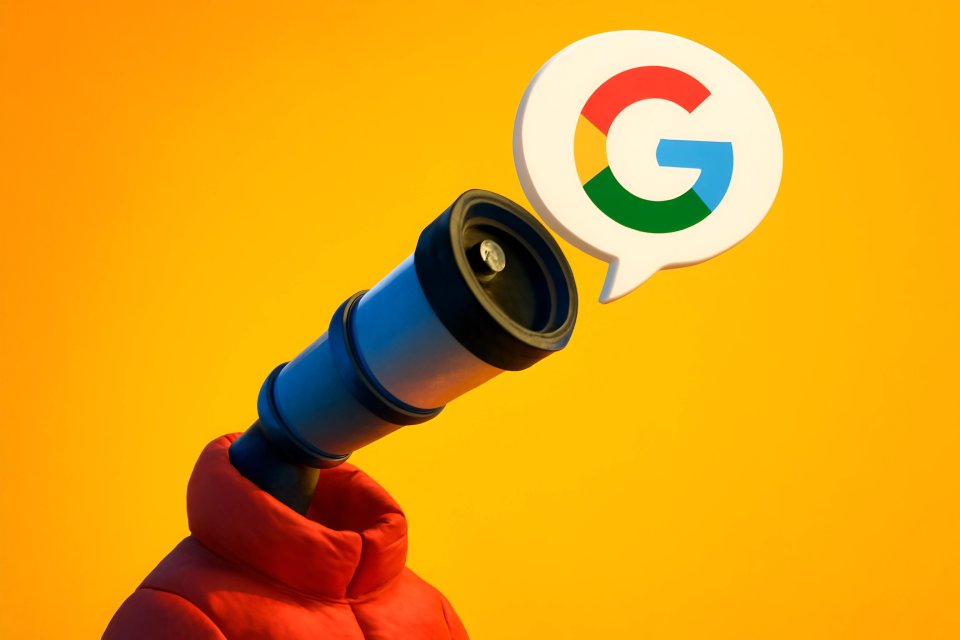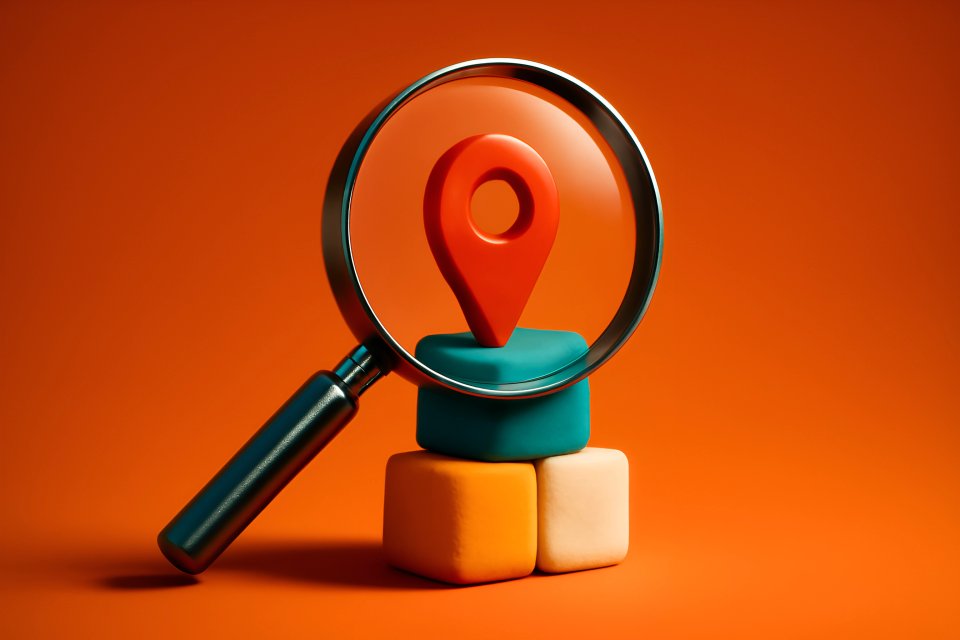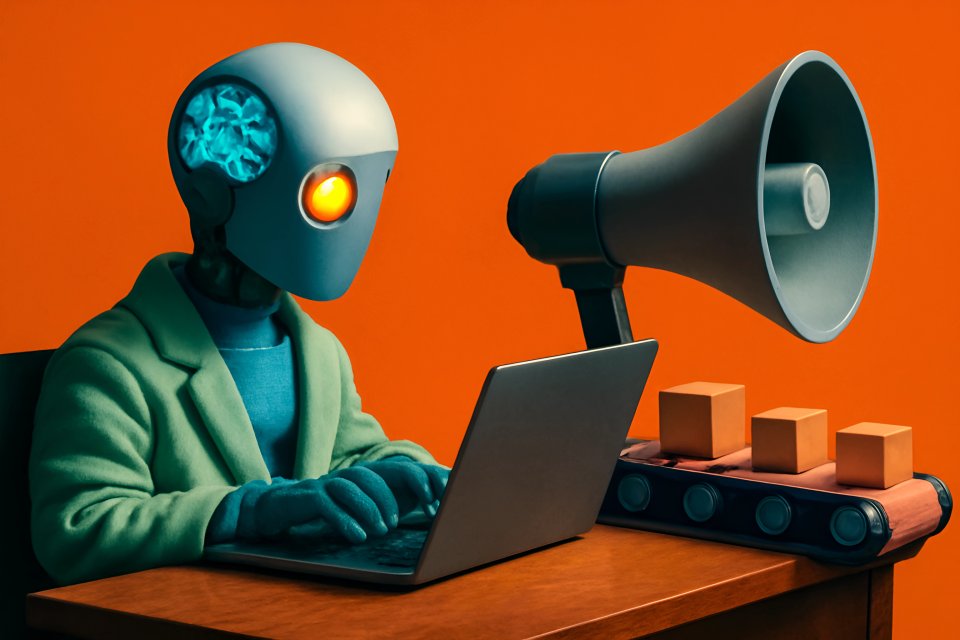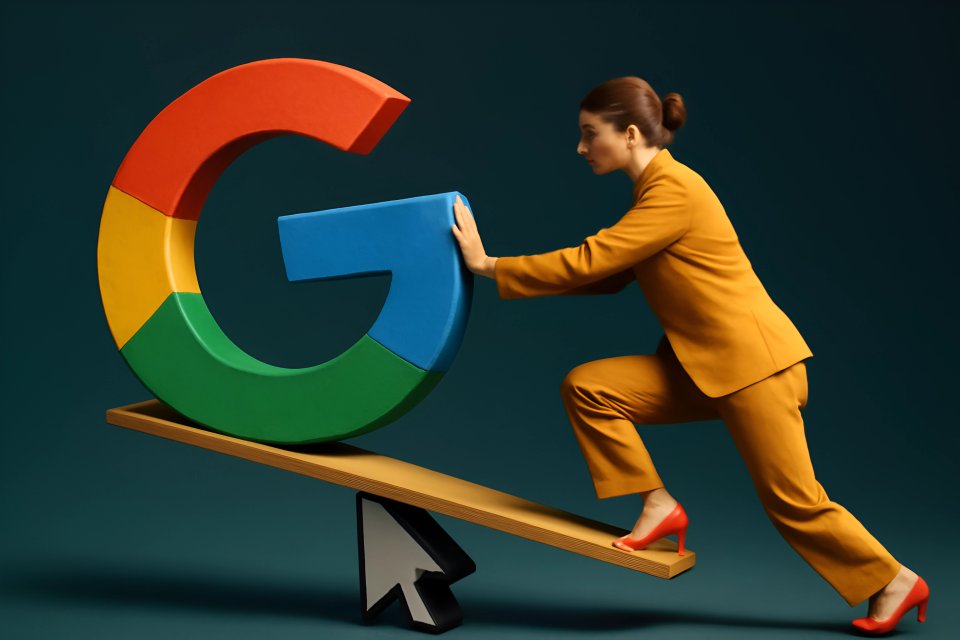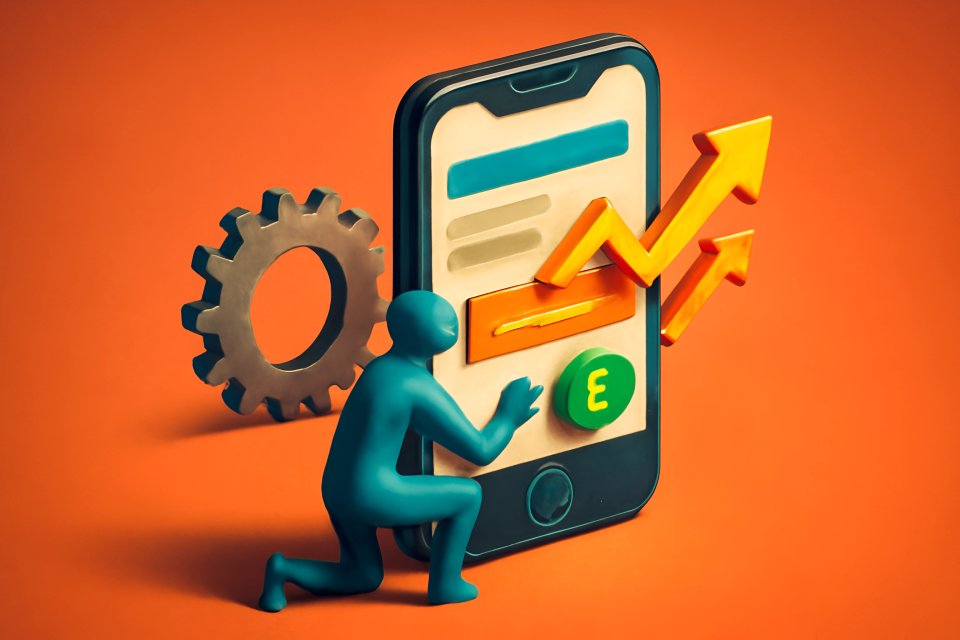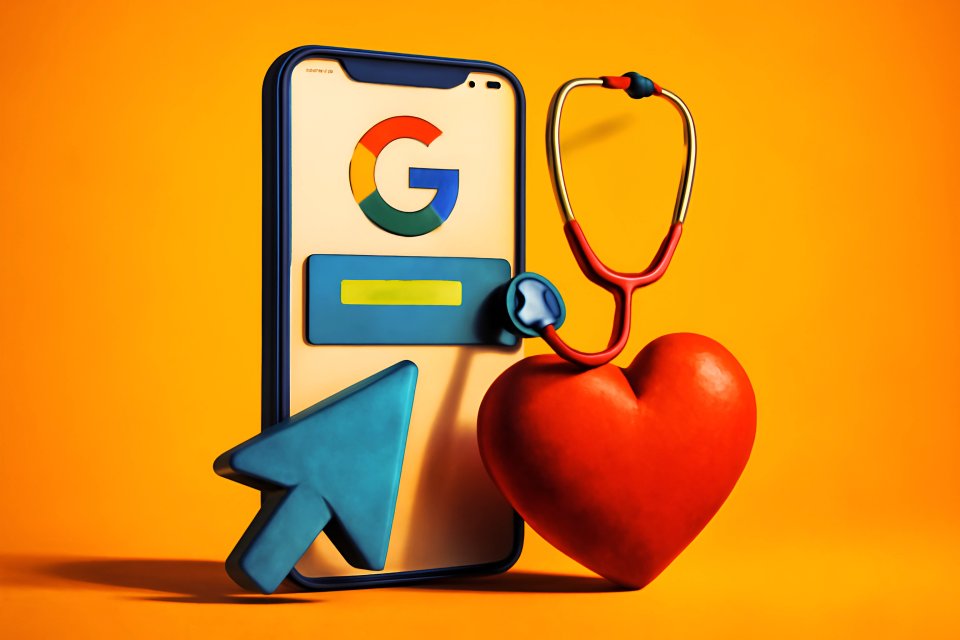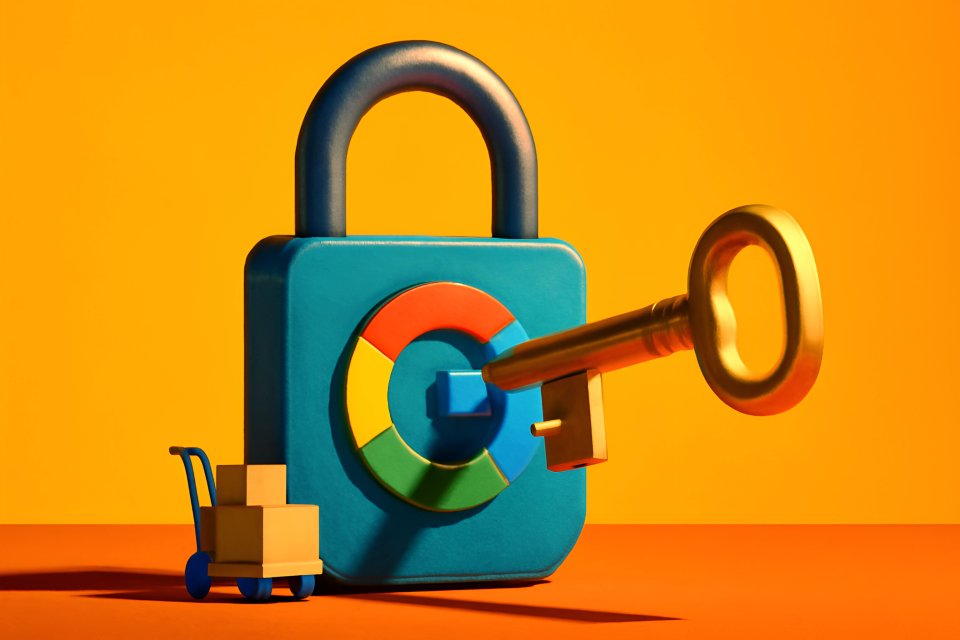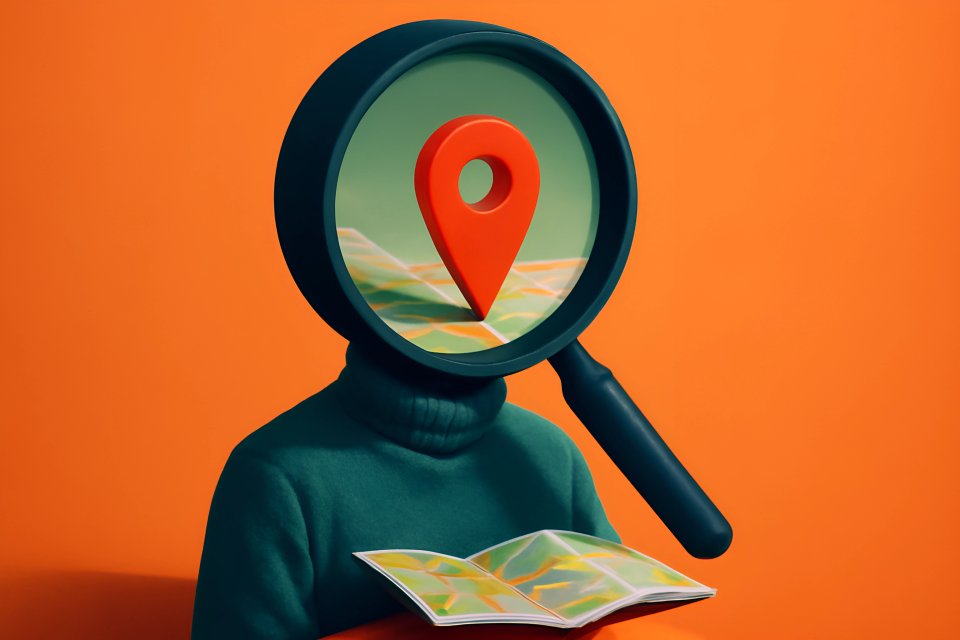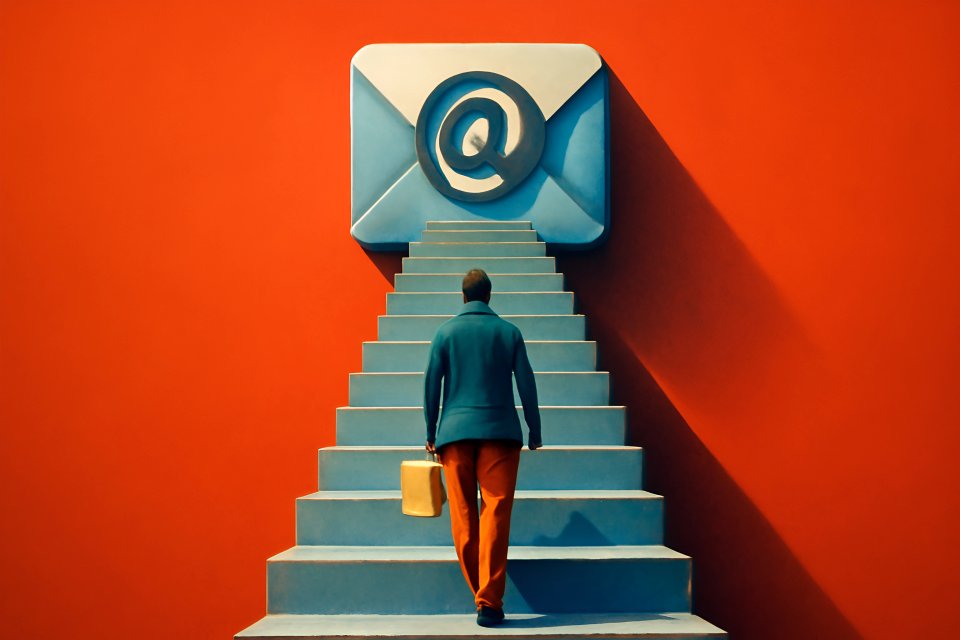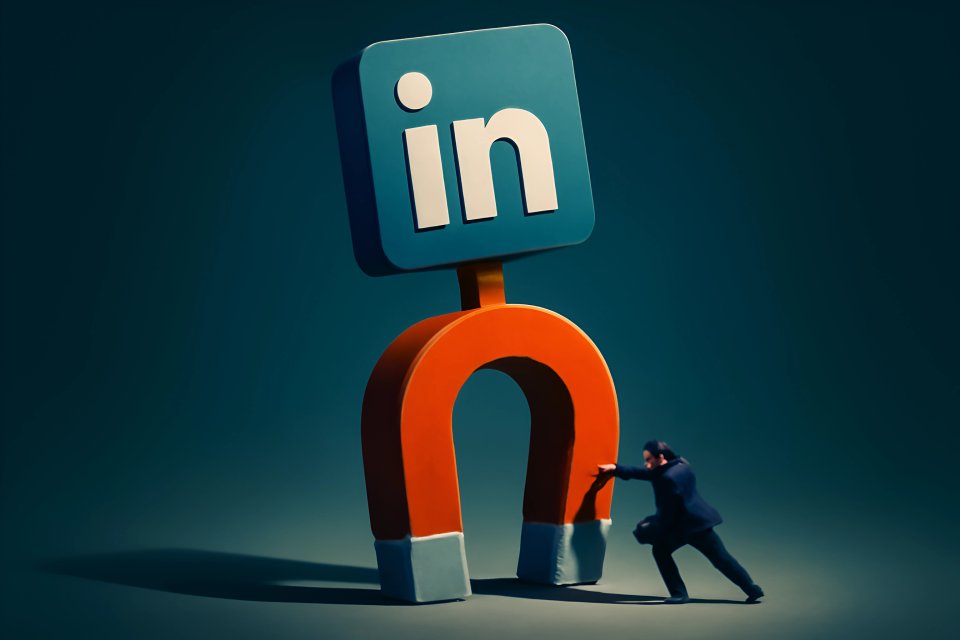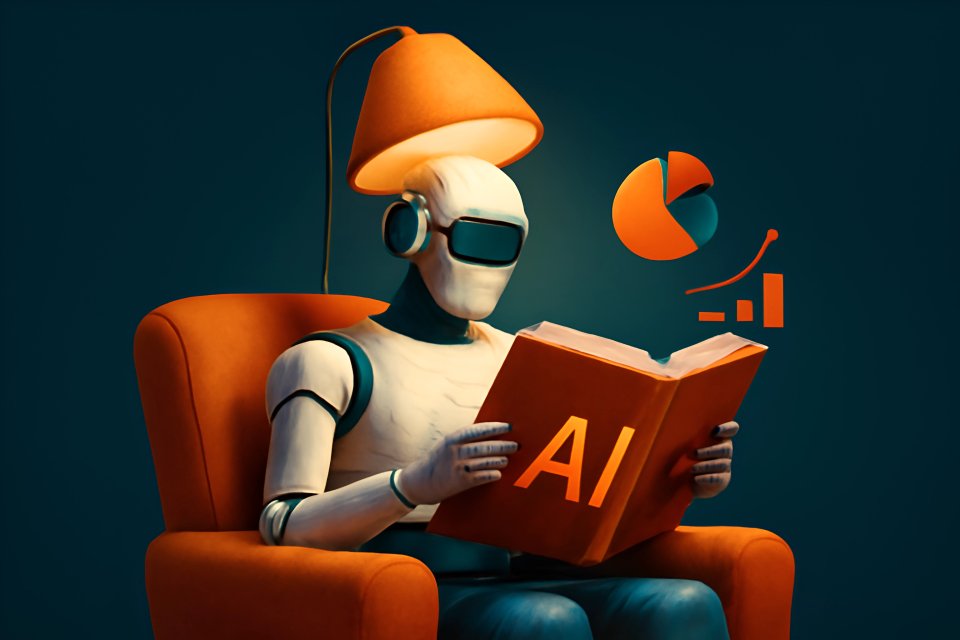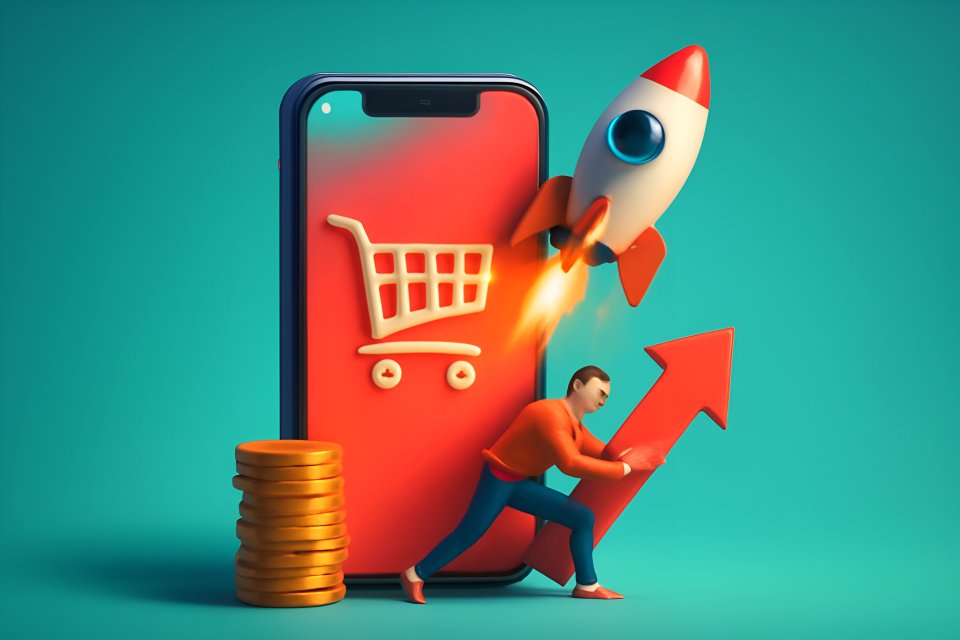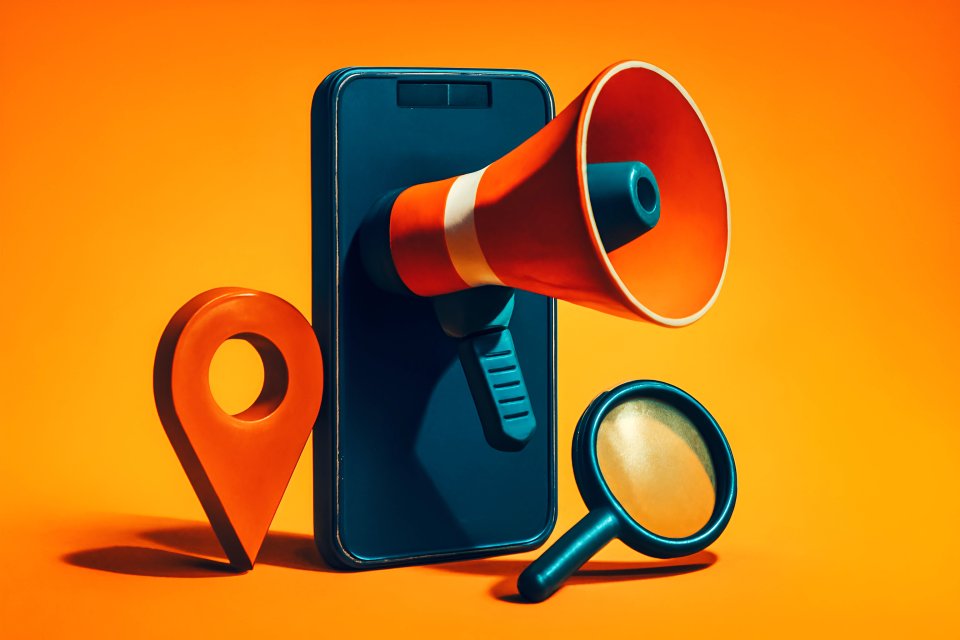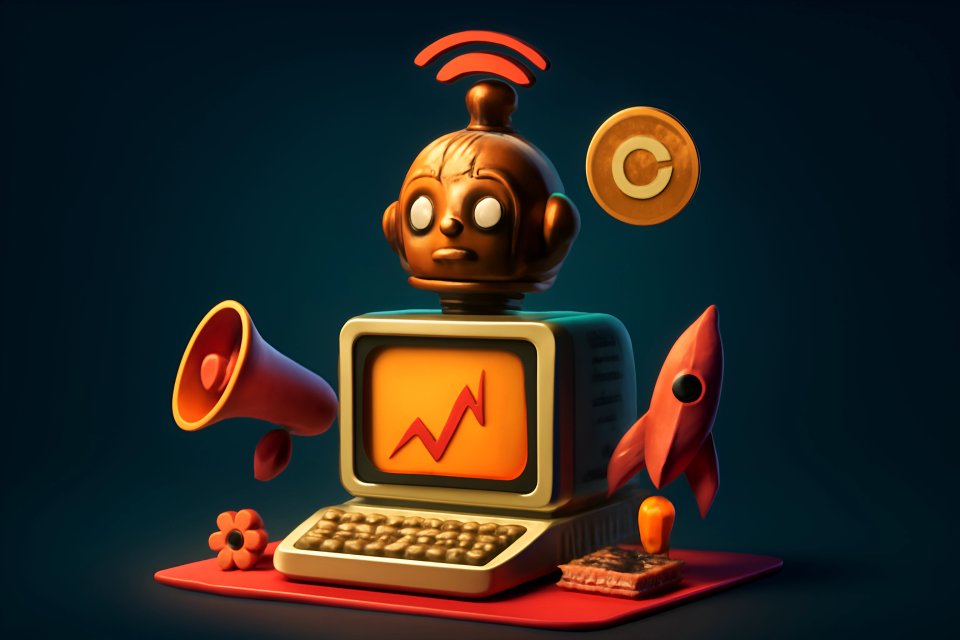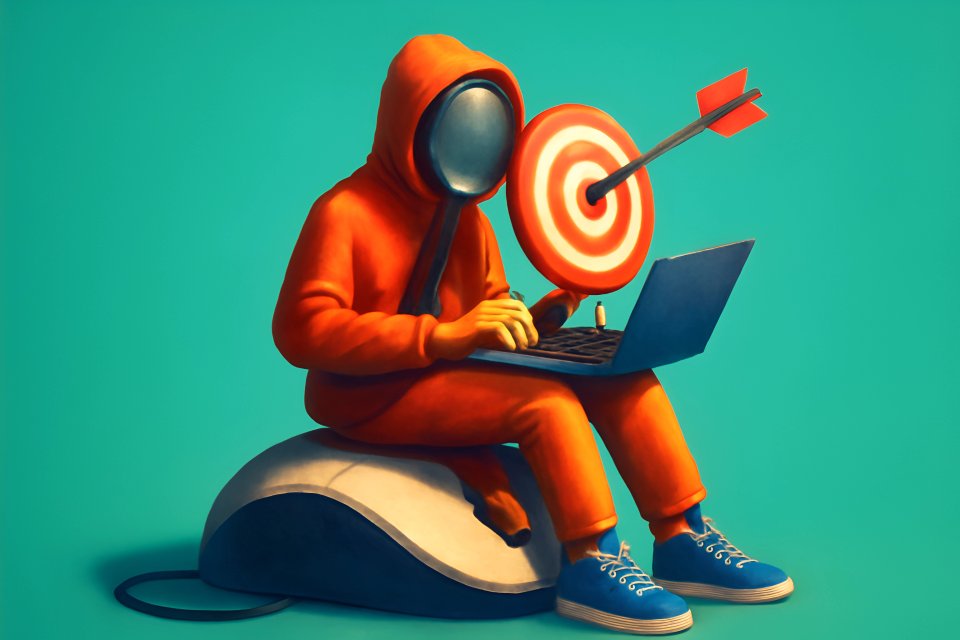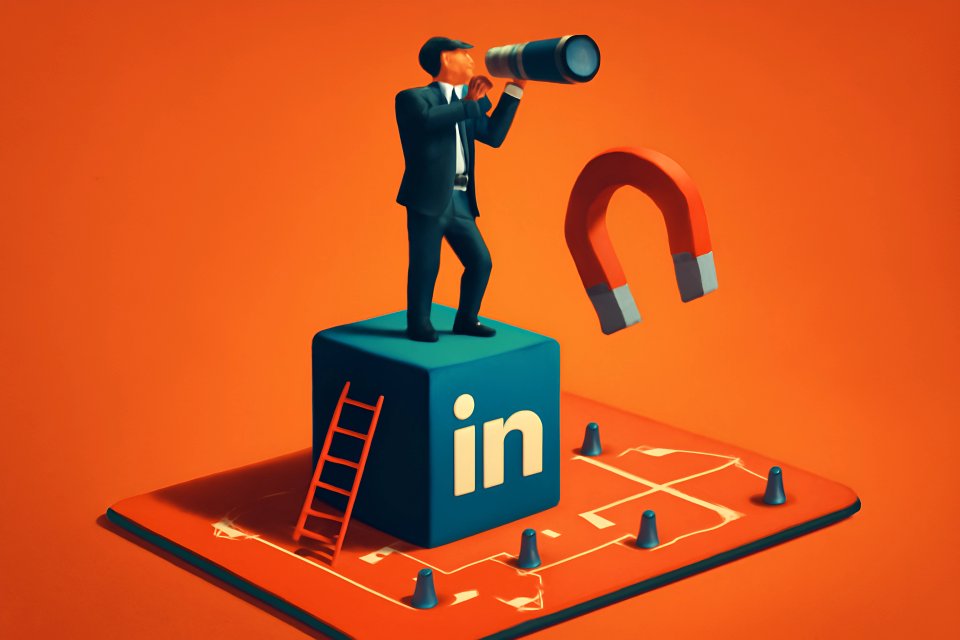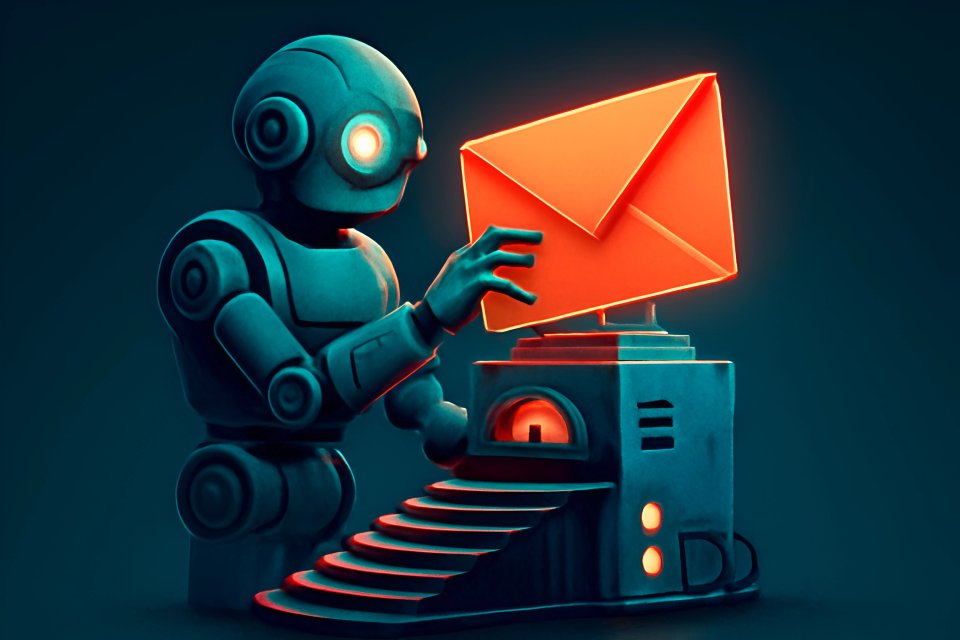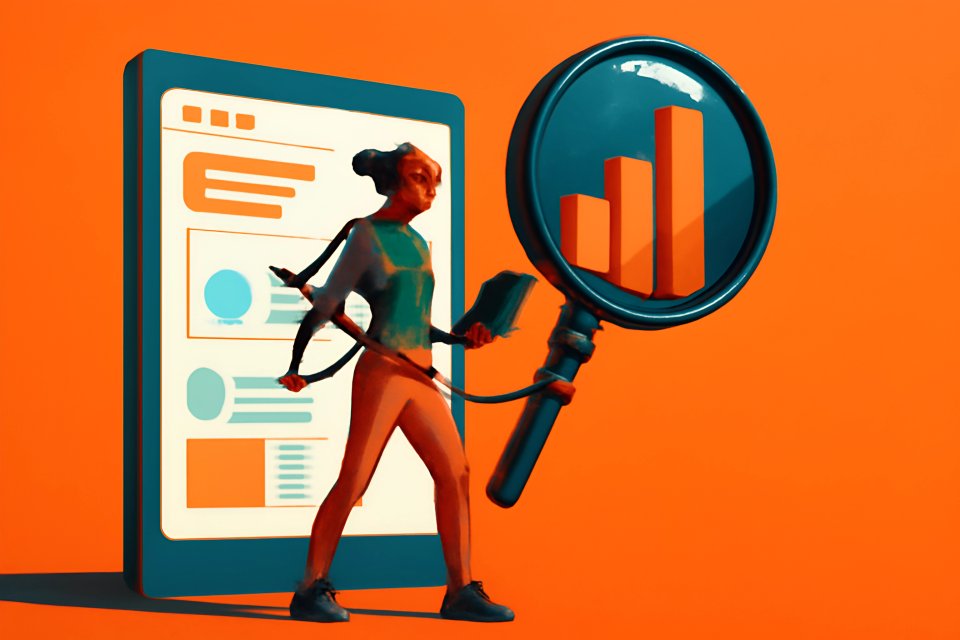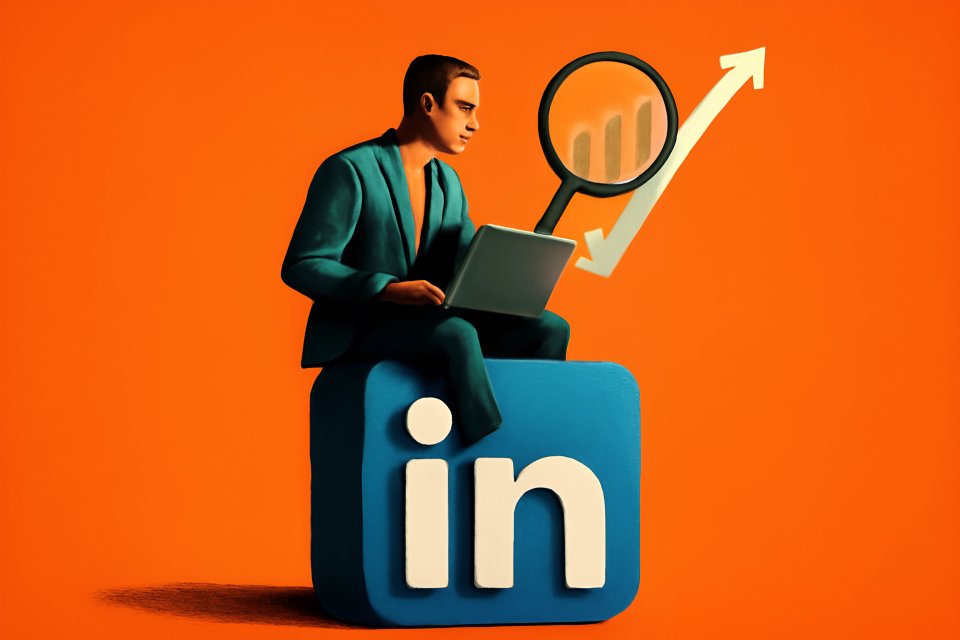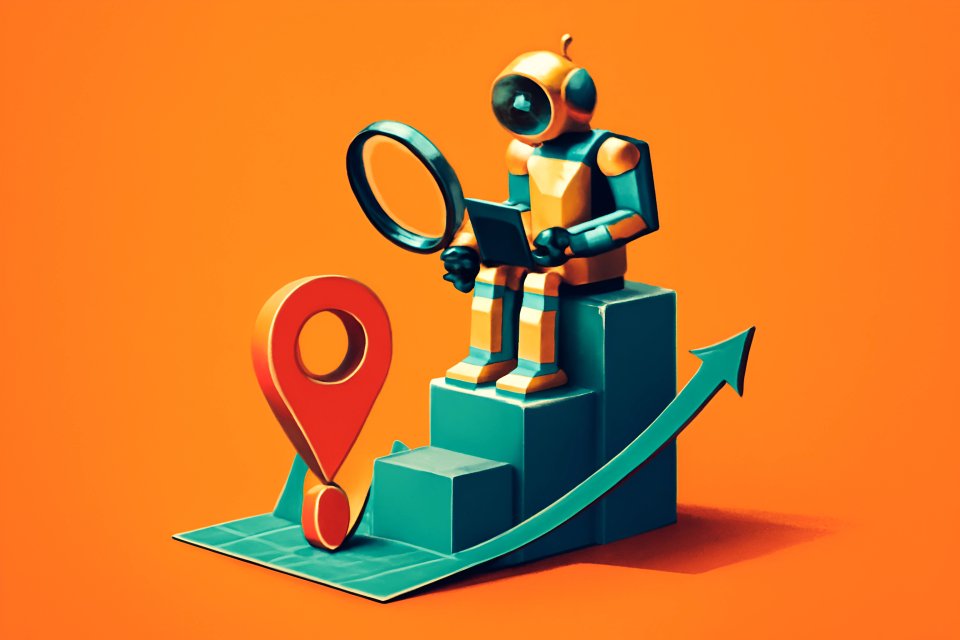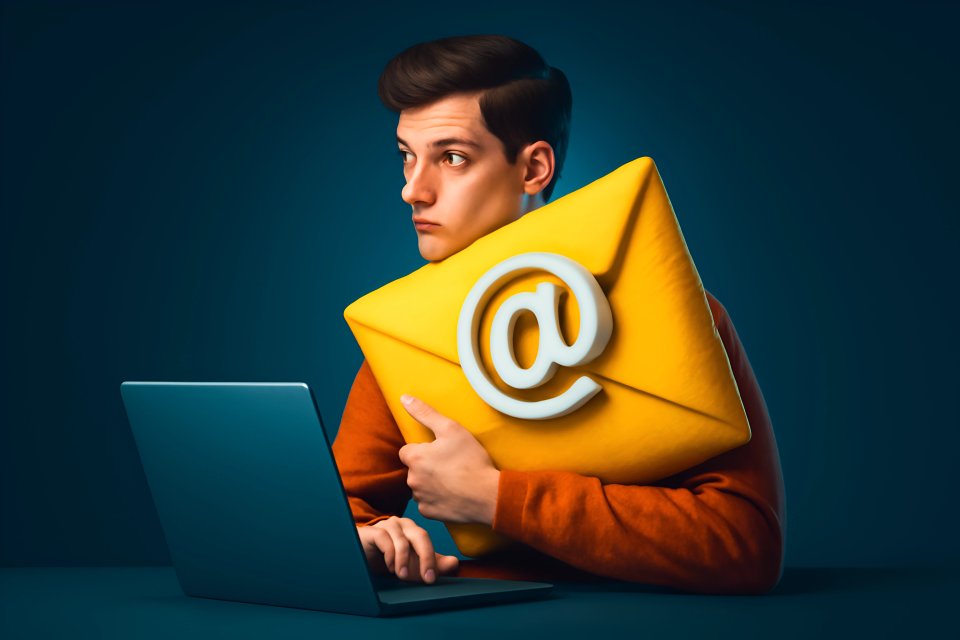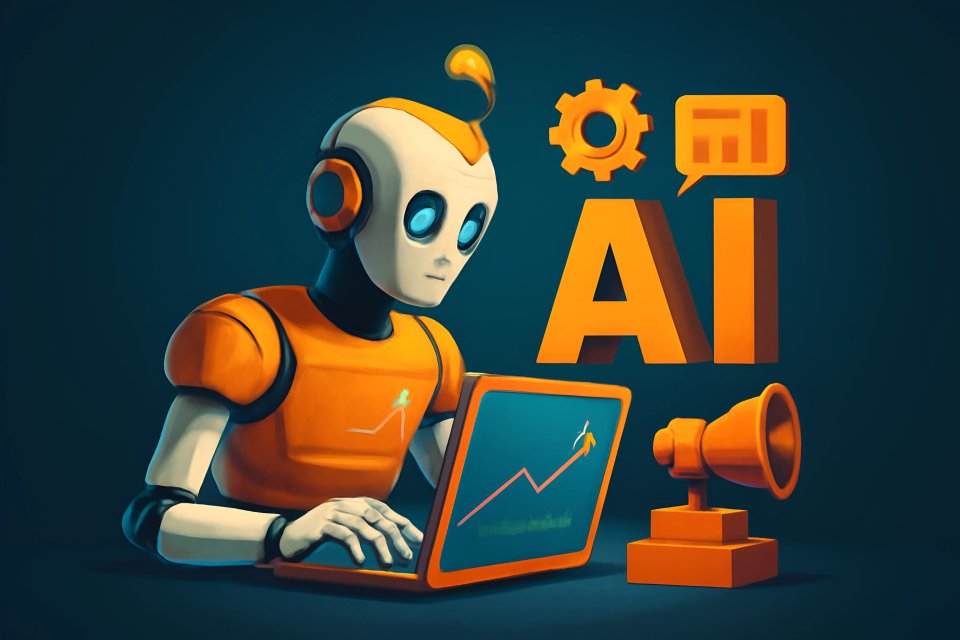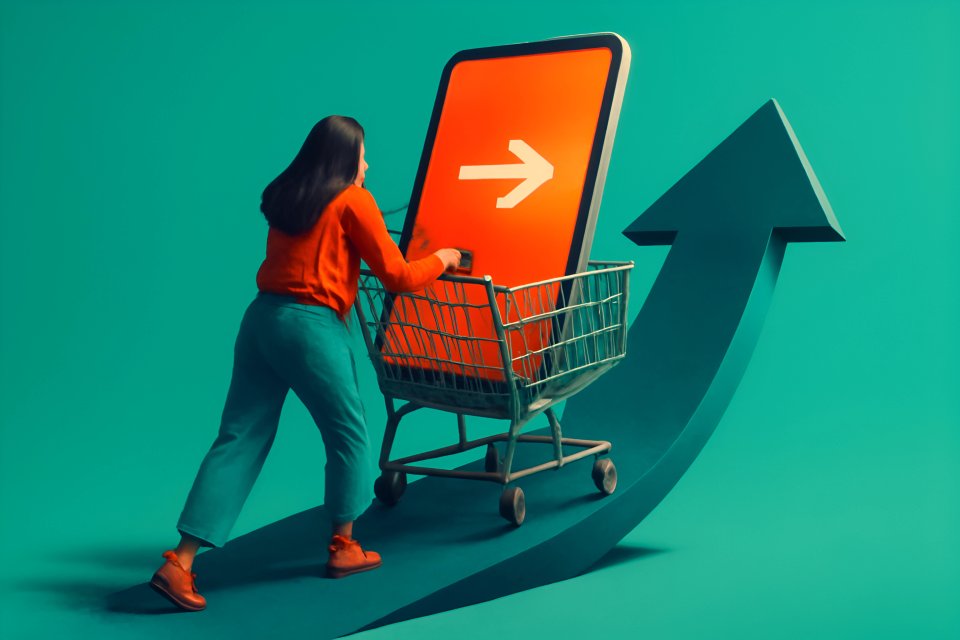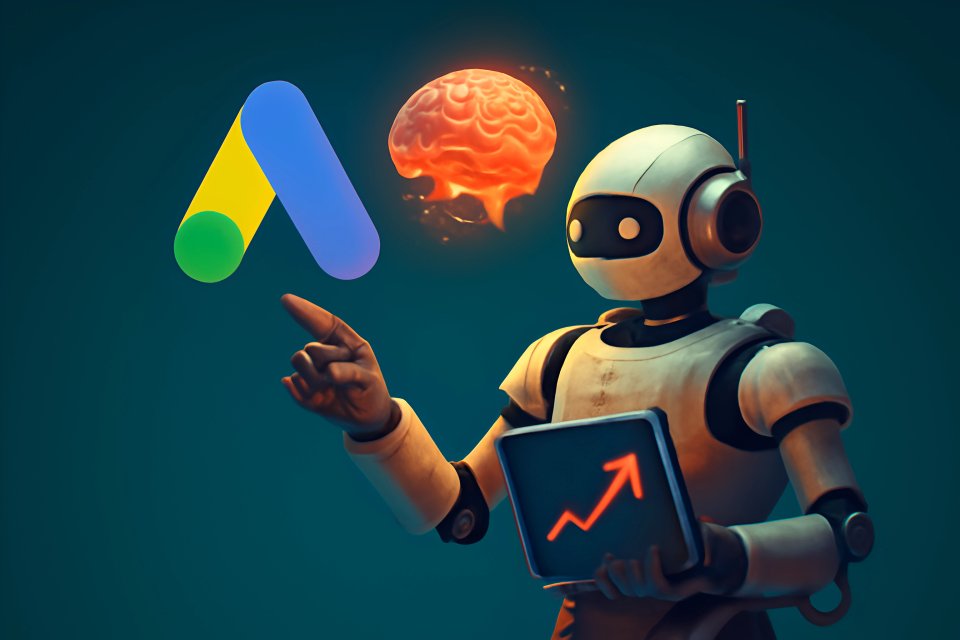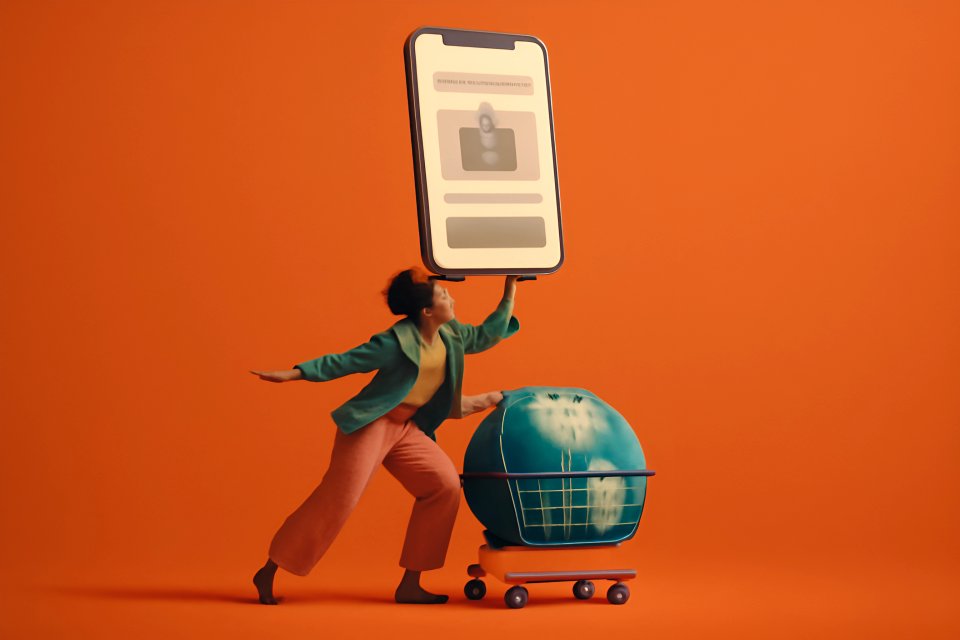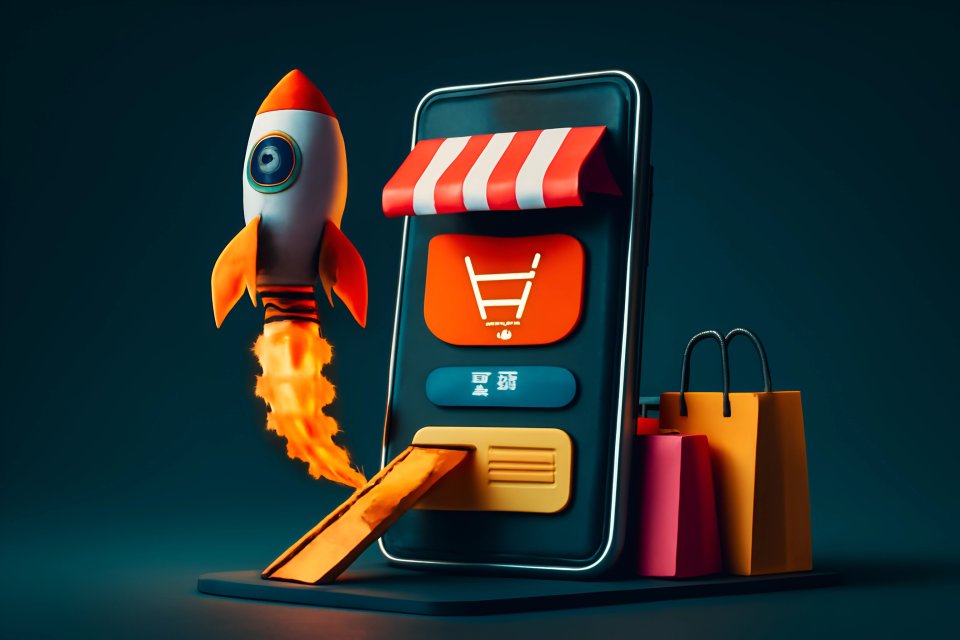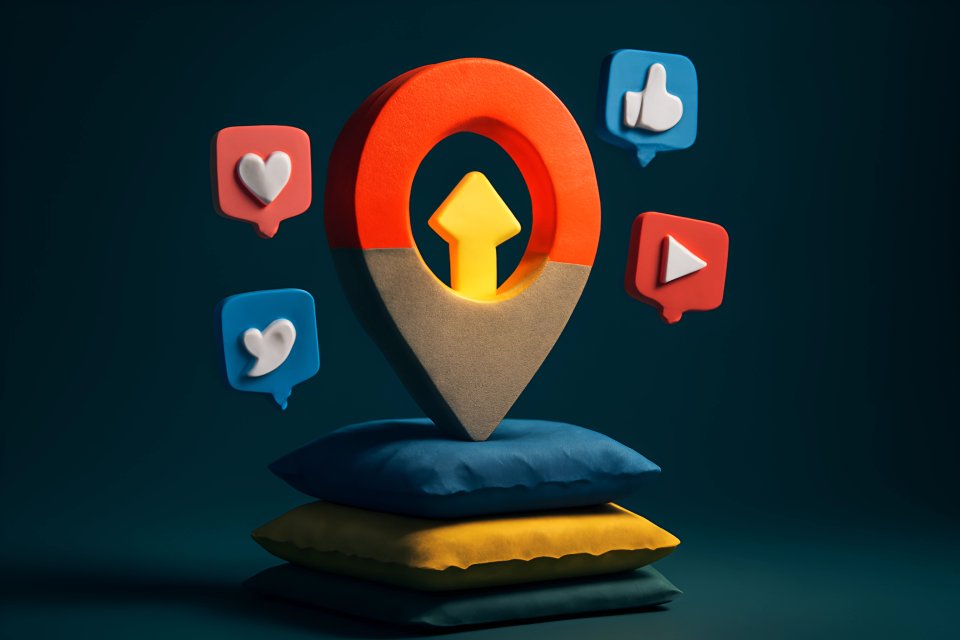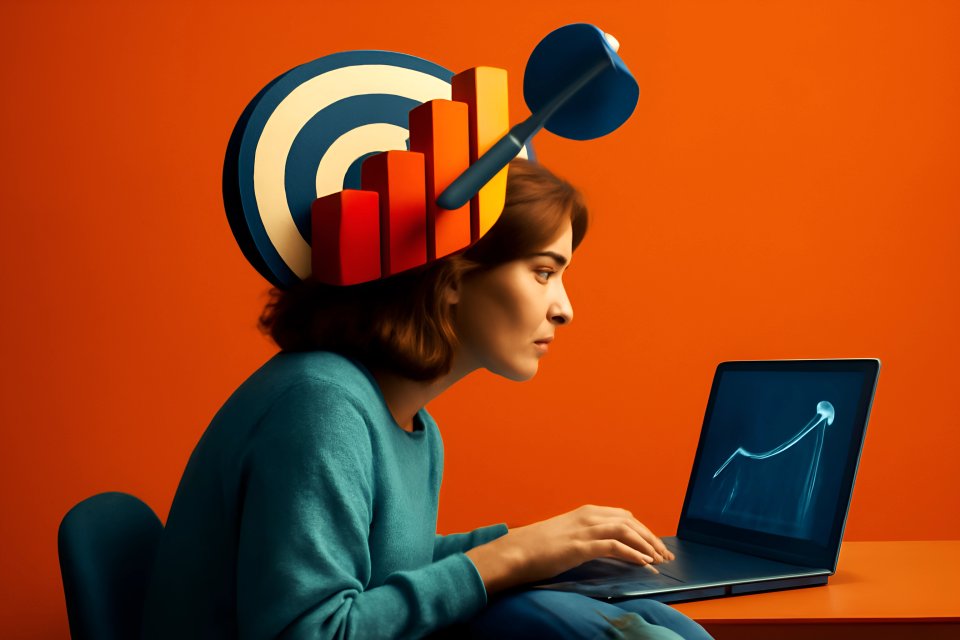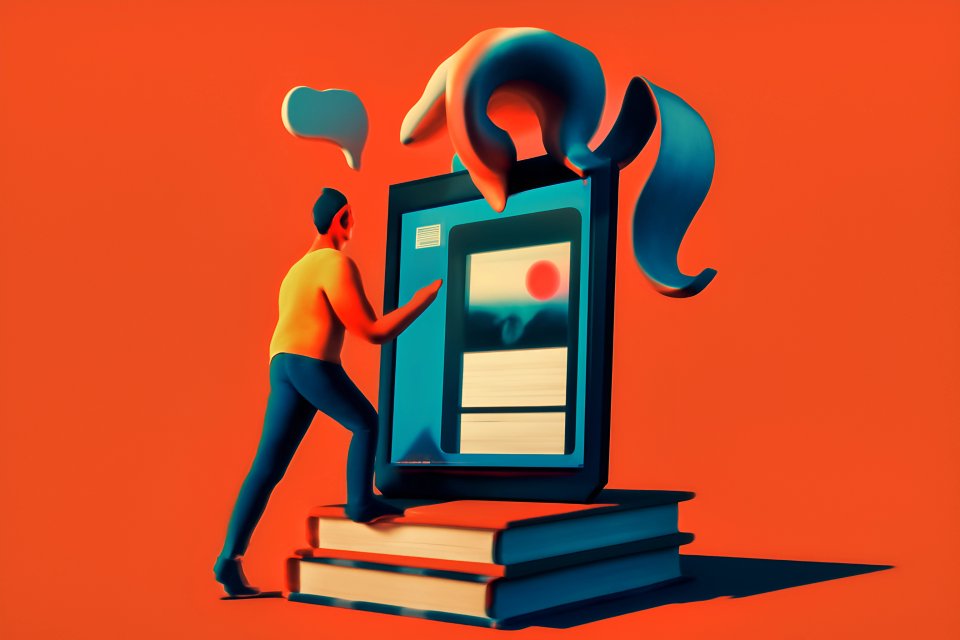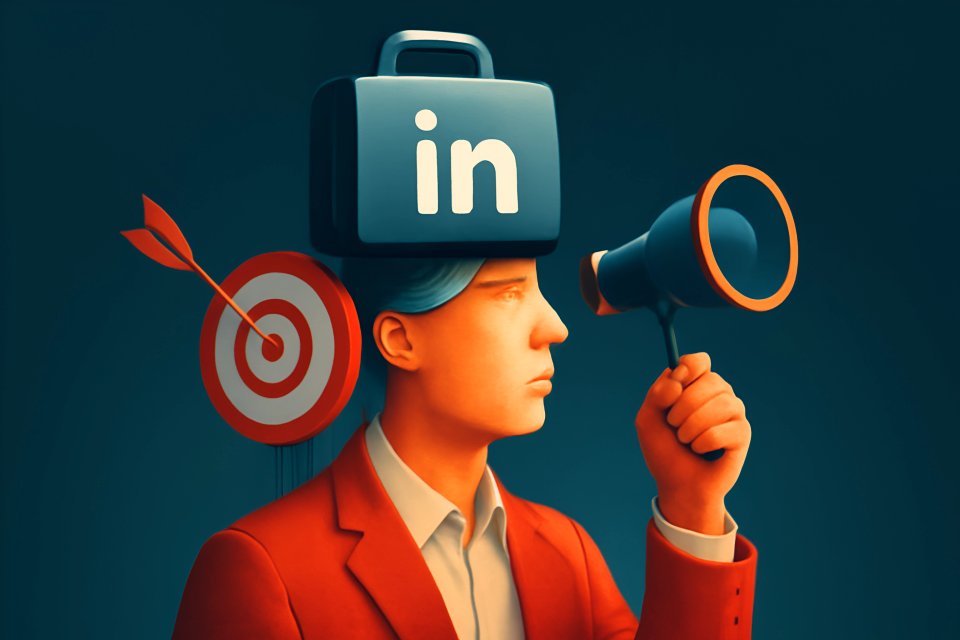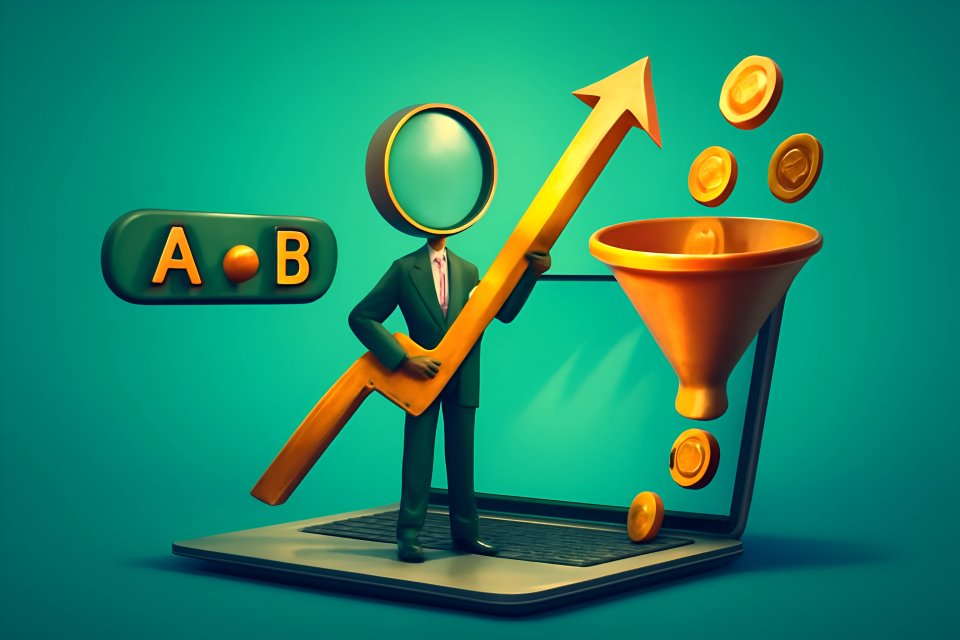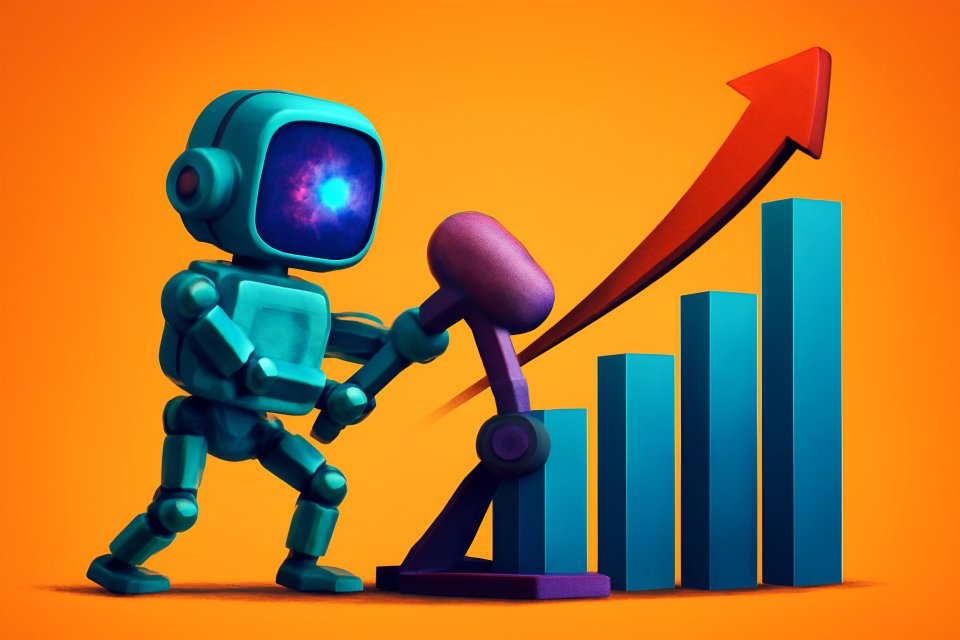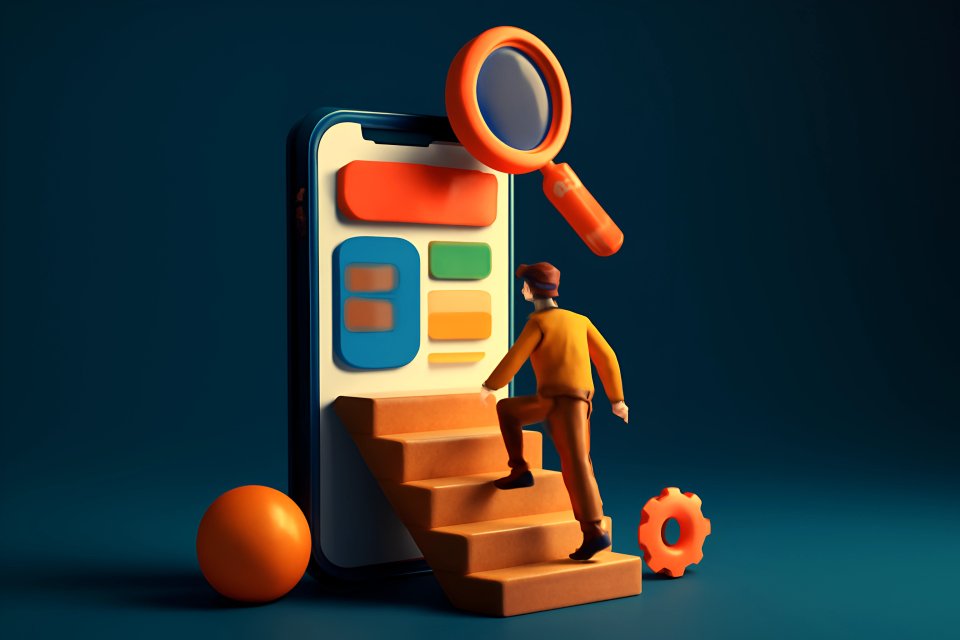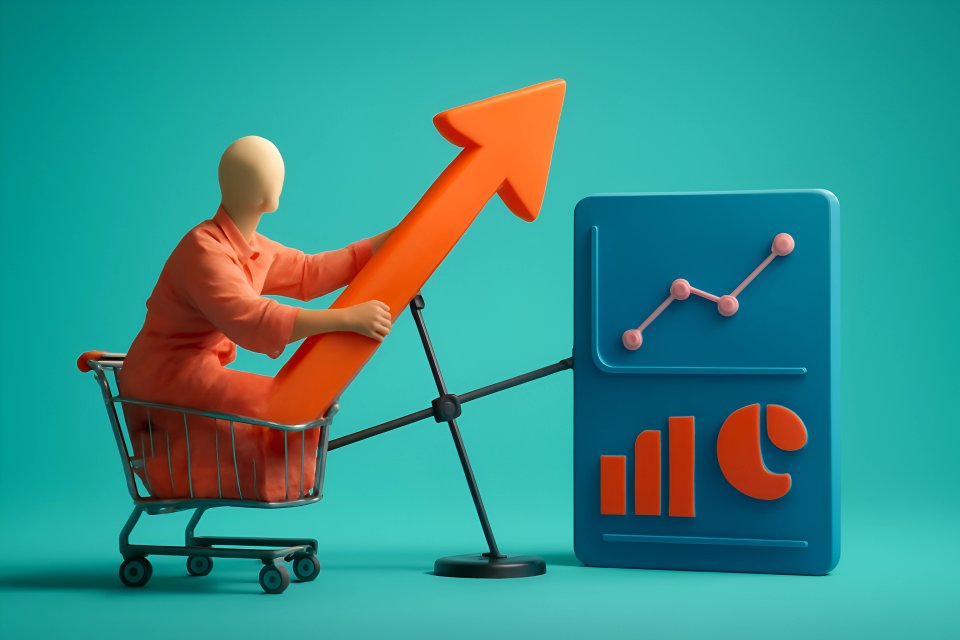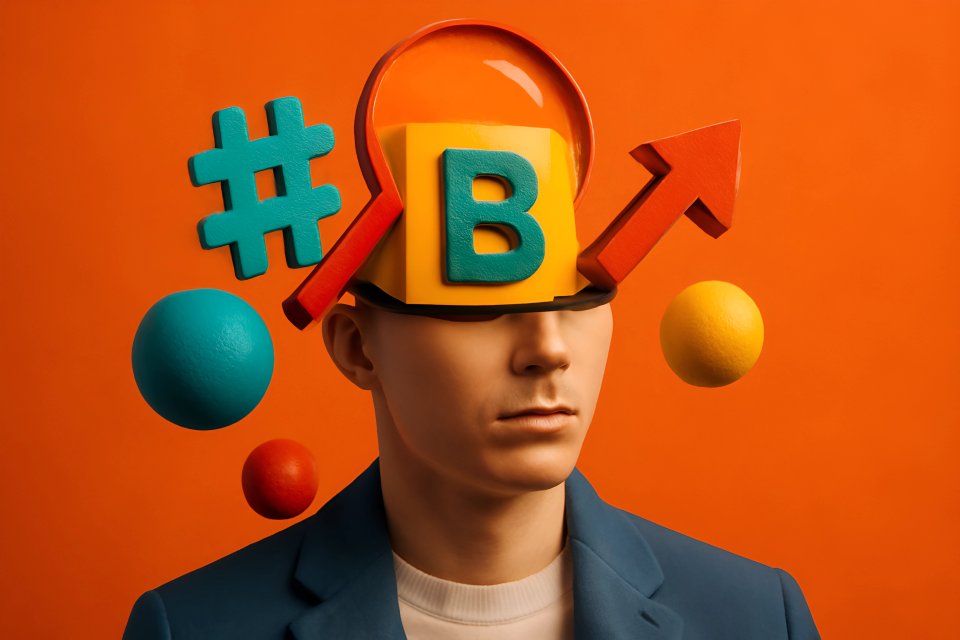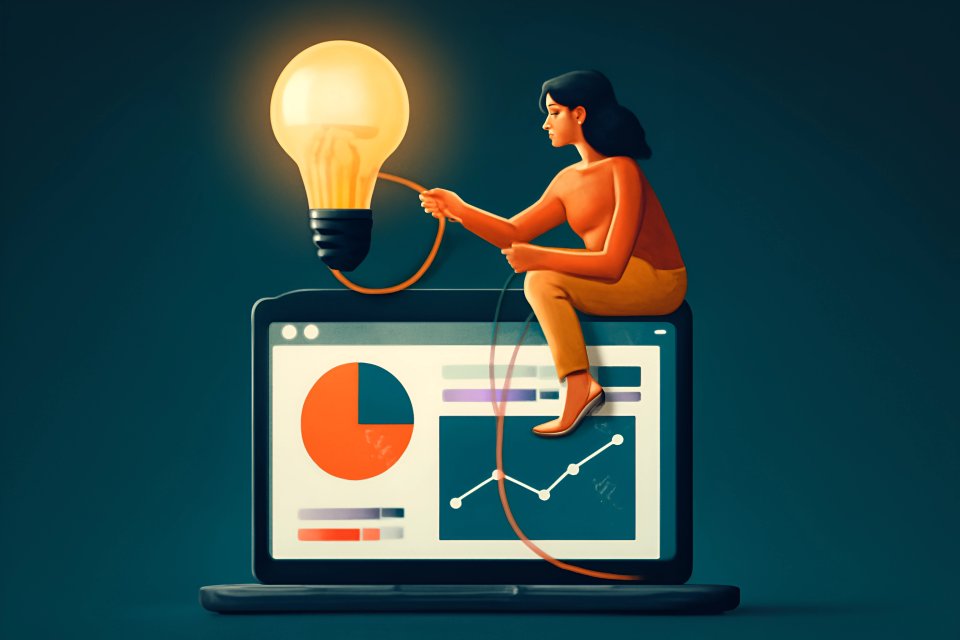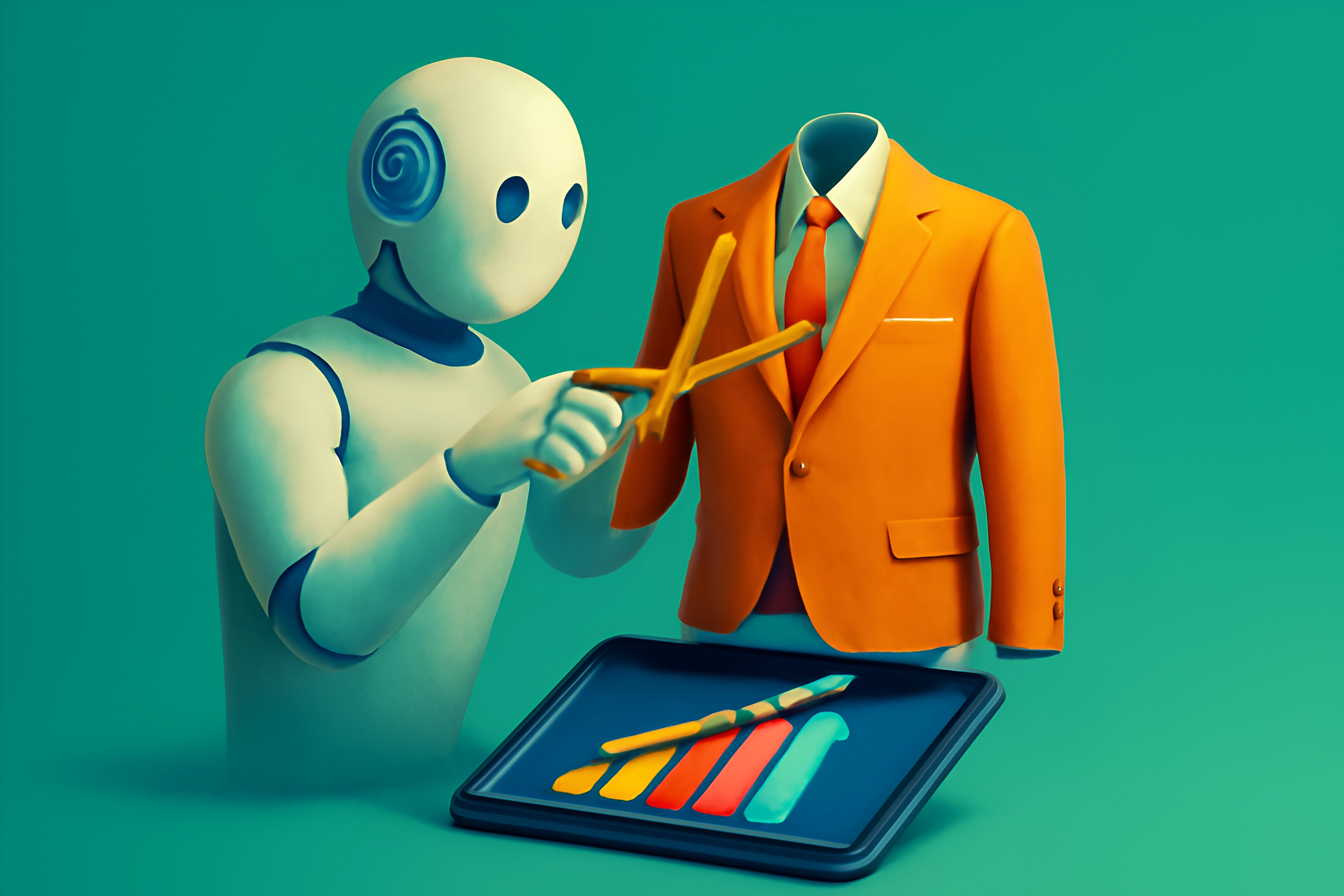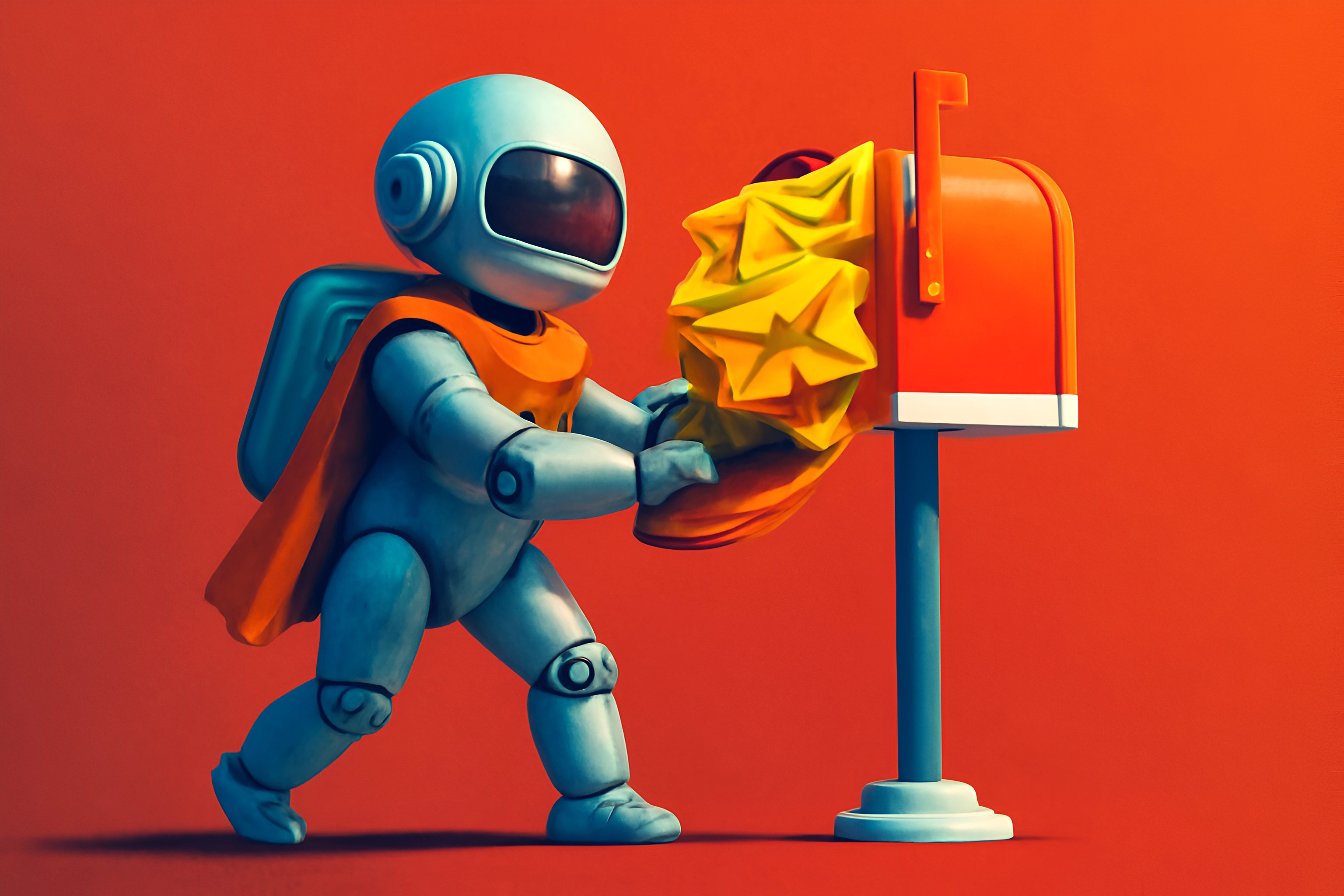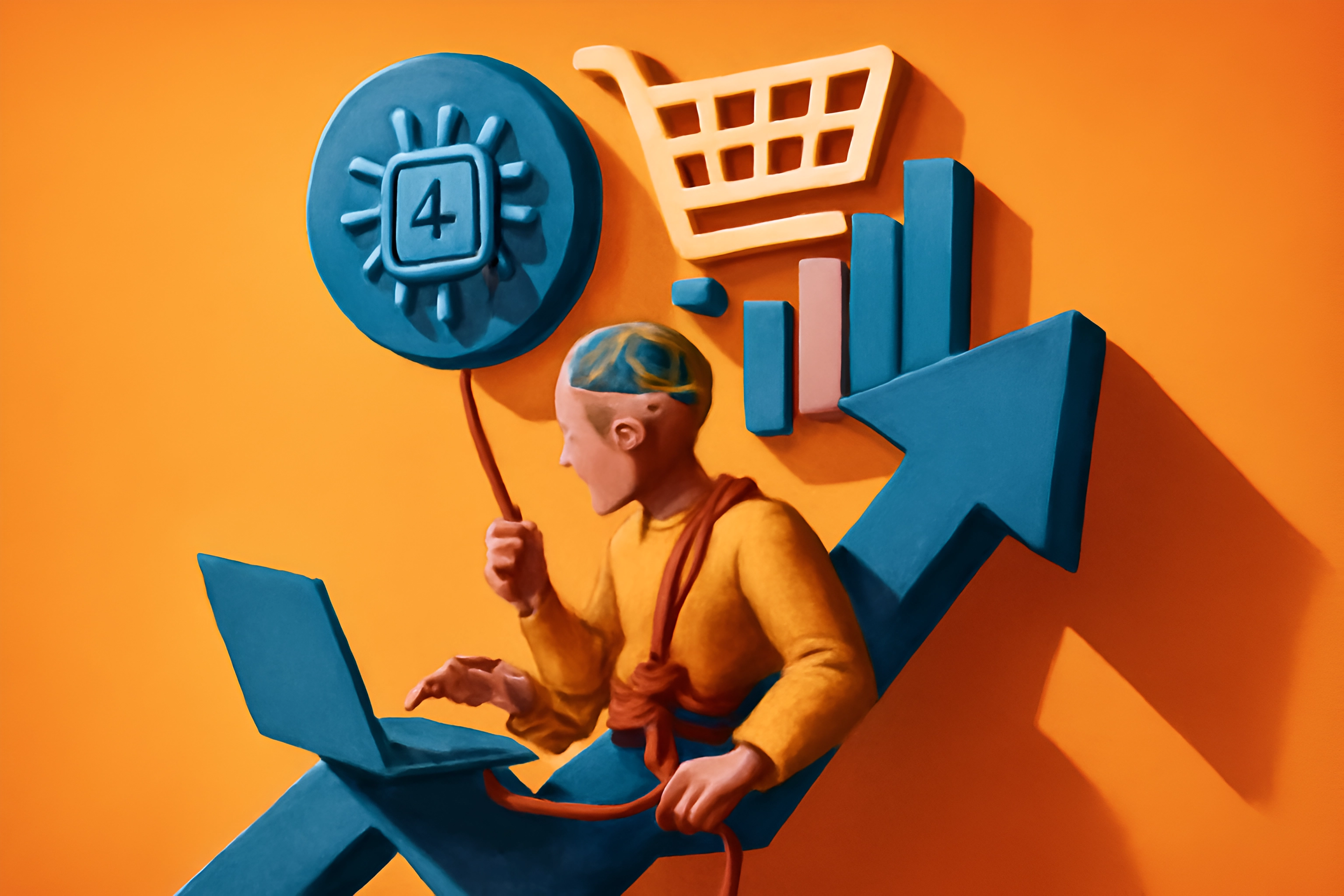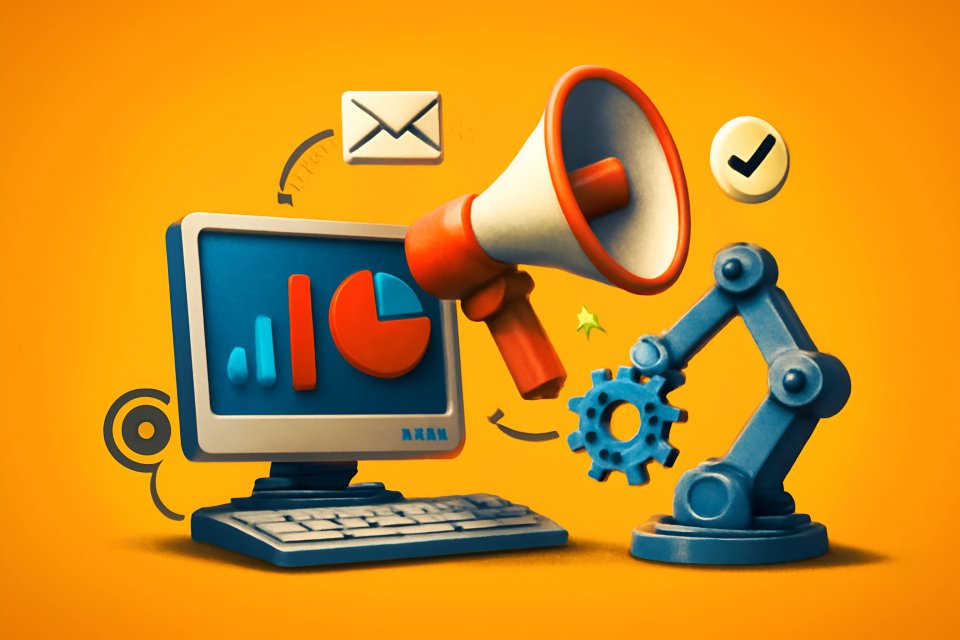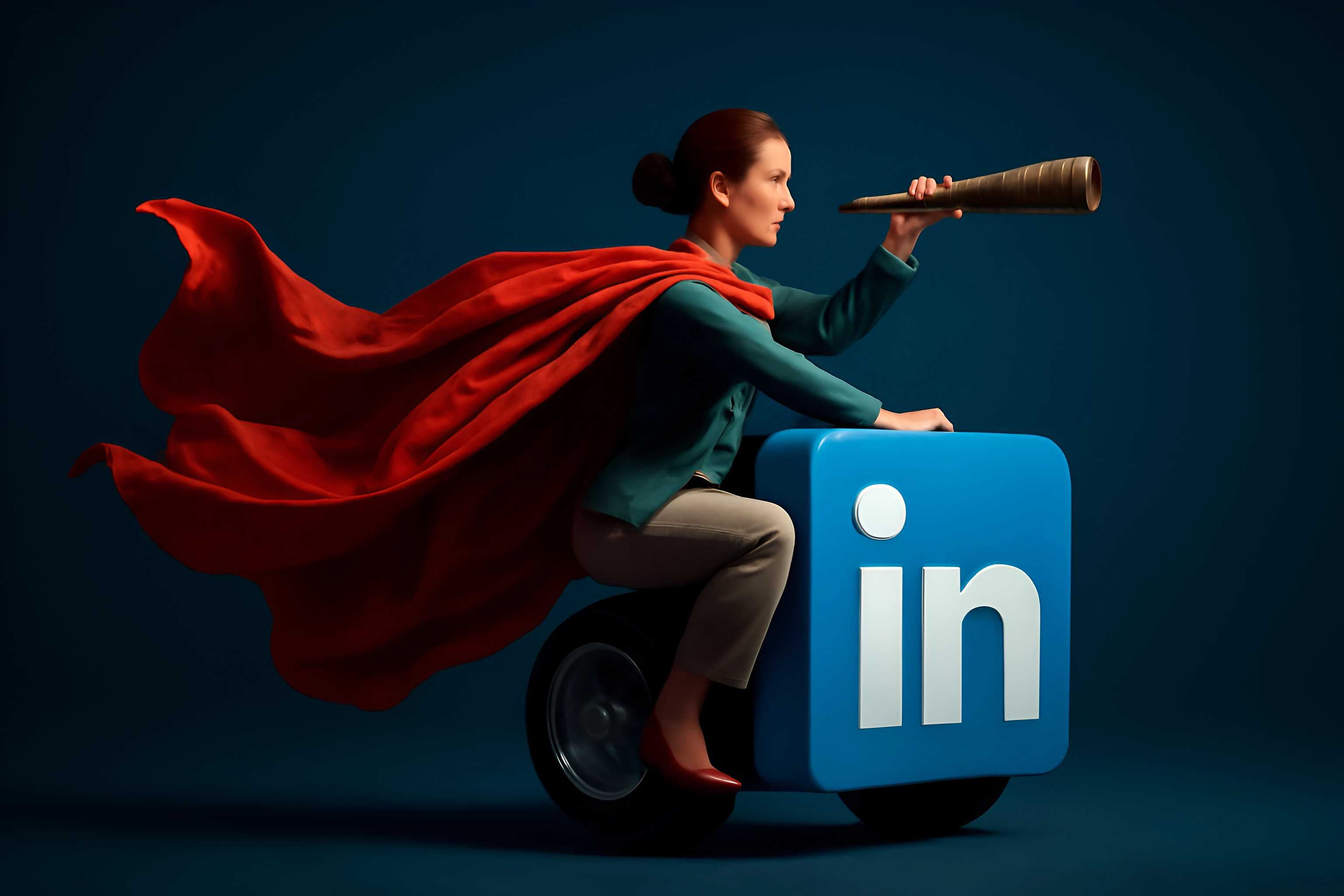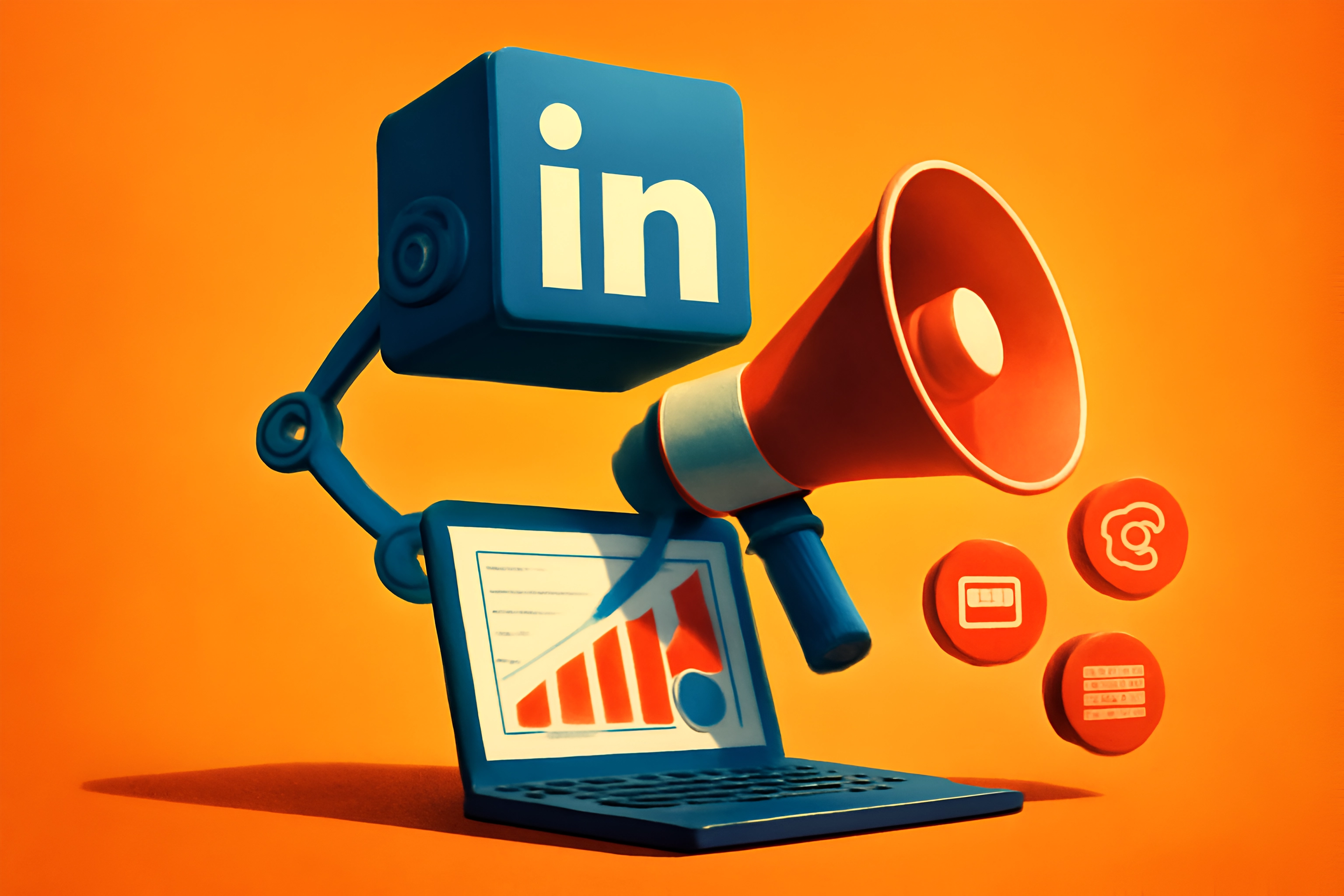Feel that pressure? It’s the constant demand to do more, be better, and deliver results that shatter expectations. You’re drowning in data, buried under repetitive tasks, and the finish line just keeps moving further away. What if you had a secret weapon?
Imagine a co-pilot, a strategic assistant working 24/7 to analyze, optimize, and execute with superhuman precision. This isn't science fiction; it's the reality of AI automation in digital marketing. It’s not here to replace you—it’s here to unleash you, freeing you from the mundane so you can focus on the brilliant.
This is your guide to that new reality. We'll cut through the noise and show you how to integrate AI into your marketing engine. You’ll learn what it is, how it transforms every channel you use, and which tools will give you an immediate, undeniable edge.
What is AI Automation in Digital marketing? (And What It's Not)
Let’s get one thing straight: AI automation is not just your standard scheduling tool. It’s the difference between a simple alarm clock and a personal butler who knows exactly when you need to wake up based on your sleep patterns, your calendar, and even the morning traffic. It’s about adding a layer of intelligence to your automation.
Think of it this way. Standard automation is telling your email platform to send a message at 9 AM on Tuesday. AI automation is the platform analyzing millions of data points to determine that for one specific customer, the perfect time to send is 9:17 PM on Wednesday, with a subject line dynamically generated to match their recent browsing behavior. As noted in a Harvard analysis on the future of marketing, AI can mine both structured and unstructured data to gain these deep insights.
The core goal is simple and powerful: to build marketing systems that are smarter, faster, and more deeply connected to your audience. It’s about creating a feedback loop where every action is informed by data, leading to relentlessly effective campaigns. This isn't just a new tactic; it's a fundamental shift in how marketing gets done.
The "Why": 5 Core Benefits of AI-Powered Marketing Strategies
Unprecedented Efficiency and Time Savings
Imagine reclaiming hours from your week, every week. AI takes on the soul-crushing, repetitive tasks—report generation, data entry, media buying—and executes them flawlessly. This isn't just about saving time; it's about reallocating your most valuable resource, your team's brainpower, to where it matters most.
Deep Personalization at Scale
Forget using [First Name] and calling it personalization. True connection happens when you understand your customer on an individual level. AI processes vast datasets to deliver hyper-personalized content, product recommendations, and ad creatives that speak directly to each user's needs and desires, a key advantage highlighted by insights from GWI on AI in digital marketing.
Data-Driven Decision Making
Your gut instinct is valuable, but it’s no match for an AI that can analyze millions of customer interactions in seconds. AI uncovers hidden patterns, predicts campaign outcomes, and provides actionable insights that human analysis could easily miss. For a deeper look at the tools that make this possible, explore our guide on leveraging AI-powered tools for next-level digital marketing analytics.
Enhanced ROI and Cost-Effectiveness
Every dollar you spend should work as hard as you do. AI automation optimizes your ad spend in real-time, identifies your most profitable channels, and runs thousands of A/B tests to squeeze every last drop of performance from your campaigns. It’s no surprise that, according to Kaltura, 71% of business leaders report a positive return on their AI investments.
Unlocking Human Creativity
What happens when your team is no longer bogged down by spreadsheets and manual adjustments? They are free to think, create, and strategize. By handling the grunt work, AI empowers your team to focus on building your brand, crafting compelling stories, and innovating in ways that drive real, lasting growth.
Practical Applications: Integrating AI Across Your Marketing Channels
For Search Engine Optimization (SEO)
Tired of the endless keyword guessing game? AI-driven tools can analyze entire topic clusters and uncover long-tail opportunities your competitors haven't even thought of. They act as your strategic partner, ensuring your content doesn't just rank, but dominates the conversation.
These platforms go beyond simple keyword density, analyzing top-ranking content to provide sophisticated recommendations on structure, readability, and semantic relevance. AI-powered crawlers can also perform technical audits at lightning speed, identifying complex site issues that could be crippling your performance.
This means you’re not just optimizing pages; you’re building an SEO moat around your business. To learn more, check out our post on advanced AI-driven on-page SEO techniques to boost organic rankings.
For Search Engine Marketing (SEM & PPC)
Are you manually adjusting bids and hoping for the best? AI-powered platforms like Google Ads' Performance Max use smart bidding to optimize for conversions in real-time, ensuring your budget is spent with maximum impact. This is the key to turning your ad spend into a predictable profit machine.
Furthermore, AI can generate dozens of ad copy and creative variations in minutes, allowing for rapid A/B testing that would take a human team weeks to complete. It can even predict campaign performance based on historical data, giving you a clearer picture of your expected returns.
Stop managing campaigns and start directing them with strategic intelligence. For a detailed guide, see our article on revolutionizing Google Ads management with AI automation.
For Lead Generation & Email Outreach
Not all leads are created equal. AI uses predictive lead scoring to analyze behavior and identify which prospects are most likely to convert, allowing your sales team to focus their energy where it counts. This is the secret to a shorter sales cycle and higher close rates.
AI also powers automated email personalization that goes far beyond a name tag. It crafts unique subject lines and body copy for different audience segments, ensuring your message resonates deeply. It can even determine the perfect moment to send an email for maximum open rates, a tactic explored in our guide to creating hyper-personalized AI-driven email outreach.
This transforms your email list from a simple database into a dynamic, responsive audience. By automating the process, you can nurture leads seamlessly and effectively.
For Social Media Marketing
What is the world saying about your brand right now? AI-powered sentiment analysis monitors brand mentions across social media, giving you an instant, unfiltered look at public perception. This allows you to manage your reputation proactively and engage in conversations that matter.
AI can also act as your content curator, suggesting relevant articles and identifying the best times to post for maximum engagement. On the advertising front, it refines audience targeting on platforms like Facebook and LinkedIn, building powerful lookalike audiences that find new customers you didn't even know you had.
This is how you move from simply posting content to building a thriving, engaged community. You can learn more by exploring our comprehensive guide to integrating AI automation in modern digital marketing.
For Web Design & Conversion Rate Optimization (CRO)
Your website should be your best salesperson, working 24/7. AI-powered chatbots provide instant customer support, answer questions, and guide users through the conversion funnel, even when your team is offline. This immediate engagement can be the difference between a lost visitor and a loyal customer.
Beyond chatbots, AI enables true website personalization. It can dynamically change website content, offers, and calls-to-action based on a user's behavior, location, or demographic data. This creates a unique, one-to-one experience that makes every visitor feel understood.
The result is a website that doesn't just look good—it actively works to convert visitors into customers. This is a core part of a practical guide for business growth using AI automation.
The Marketer's AI Toolkit: Essential Automation Marketing Tools
Choosing the right tool can feel overwhelming, but the key is to match the technology to your specific goals. The modern marketing landscape is filled with powerful platforms designed to automate and optimize every facet of your strategy. As detailed in a comprehensive list of top AI marketing tools, most teams use a combination of platforms to build a complete tech stack.
Here are a few leading examples by category to get you started:
- Content & Copywriting: Tools like Jasper and Copy.ai can generate high-quality marketing copy in seconds, while platforms like SurferSEO help optimize that content for search engines.
- SEO & Analytics: MarketMuse uses AI to help you build content strategies, while tools like Alli AI can automate technical SEO implementations.
- Advertising & SEM: Platforms like AdCreative.ai generate high-converting ad creatives automatically, complementing the native AI in Google's Performance Max campaigns.
- Email & CRM: HubSpot's AI tools offer predictive lead scoring and content suggestions, while Salesforce Einstein brings AI-powered insights directly into your CRM workflow.
For a more detailed breakdown, explore our guide to the top AI tools and automation techniques for digital marketing success.
Looking Ahead: Emerging AI Marketing Trends
The revolution is just getting started. The next wave of AI will bring changes that seem like magic today. We are moving beyond simple automation and into the era of truly autonomous systems.
One of the most exciting developments is the rise of what experts at CMSWire call agentic AI—autonomous systems that perform complex workflows without human input. Imagine an AI agent that can analyze competitors, segment audiences, and launch an entire campaign on its own. This technology is already here and will soon become a competitive necessity.
We're also seeing the emergence of Generative Engine Optimization (GEO), a new discipline focused on optimizing content for AI-driven search engines like Perplexity and ChatGPT, as highlighted by ContentGrip's look at the future of AI marketing. The rise of generative AI in video and imagery, coupled with the growing importance of conversational AI for voice search, means the skills and strategies that work today will need to evolve rapidly.
Conclusion: Start Smart, Not Big
The world of AI automation is vast, but you don't have to conquer it all at once. The power of AI is that it’s an amplifier—it takes your existing strategy and makes it more efficient, more personal, and ultimately, more profitable. It’s the co-pilot that will help you navigate the future of marketing.
The key is to start smart. Don't try to automate everything overnight. Identify your single biggest pain point—the most time-consuming task, the biggest data challenge—and find an AI solution that solves it. From that one small victory, you can build momentum and transform your entire marketing operation.
What part of your marketing strategy are you looking to automate first? Let us know in the comments!
Ready to build a smarter, data-driven marketing strategy but not sure where to start? The team at CaptivateClick specializes in integrating cutting-edge solutions with proven marketing fundamentals. Contact us today for a strategic consultation and let's unlock your brand's full potential.

